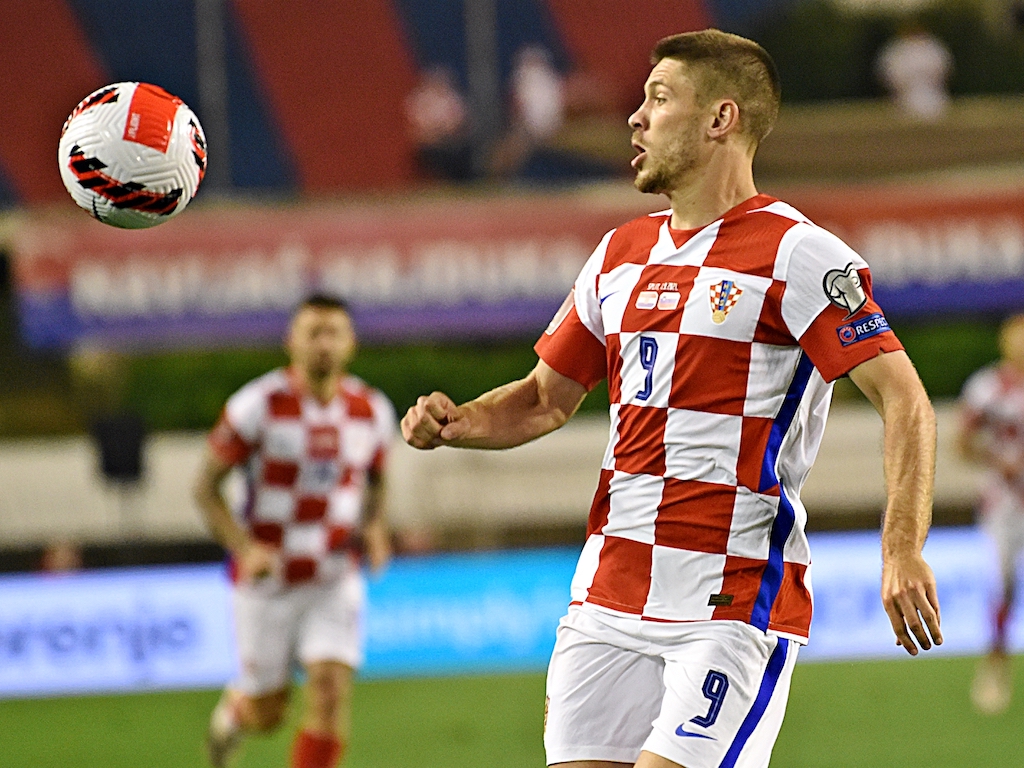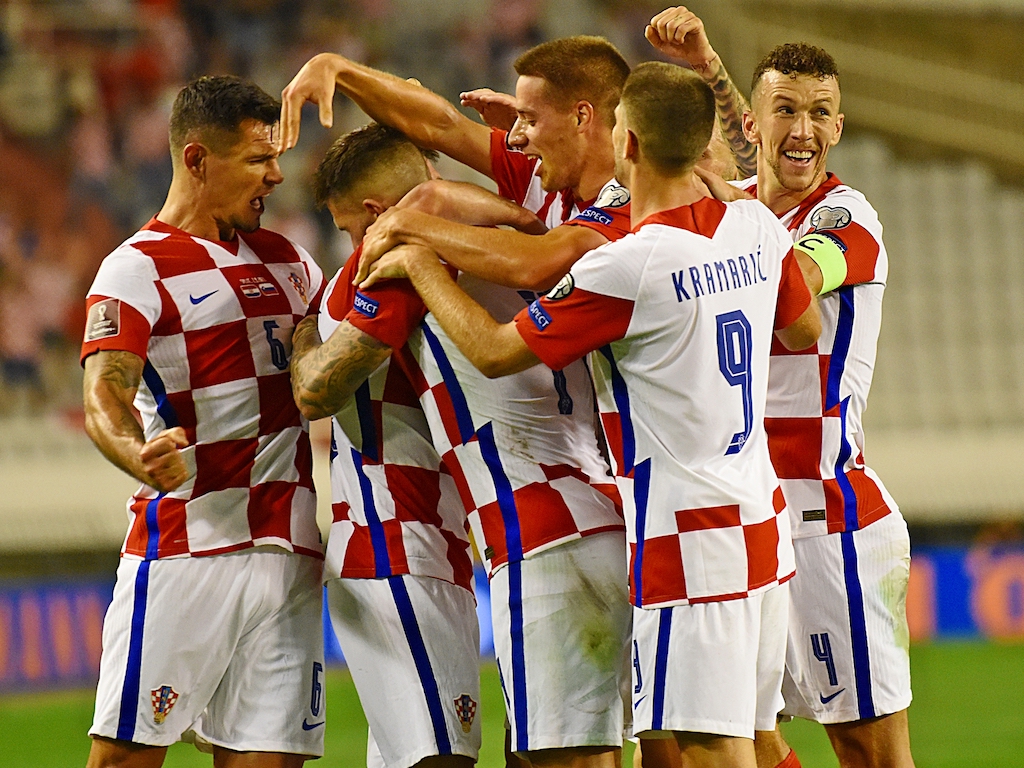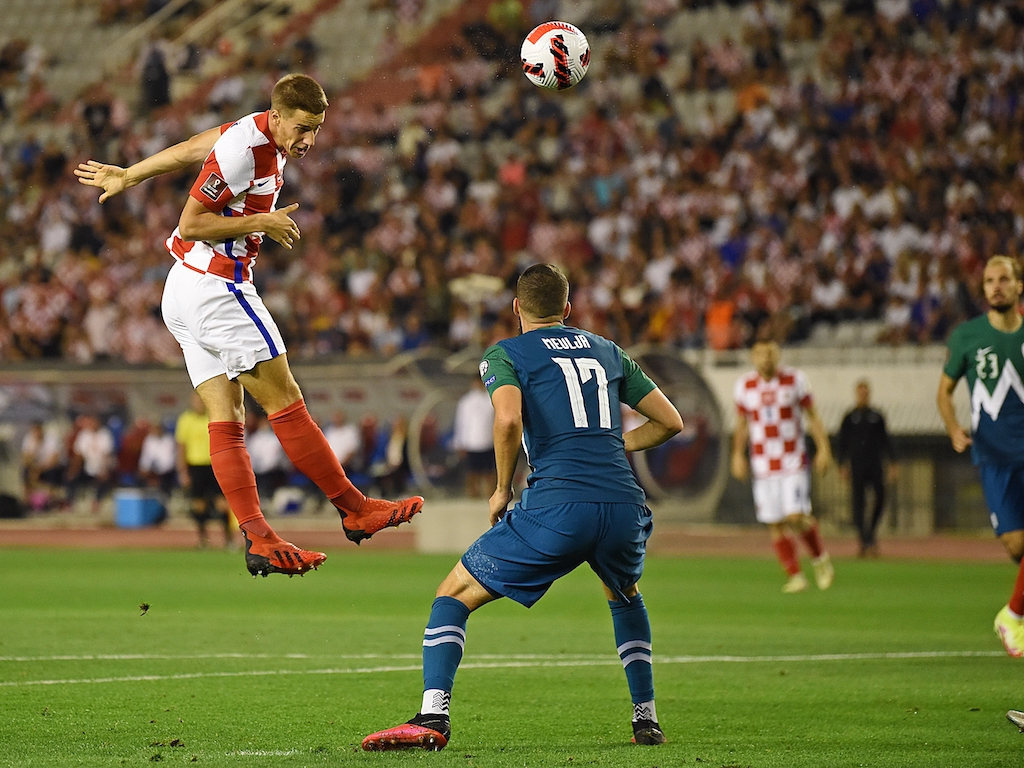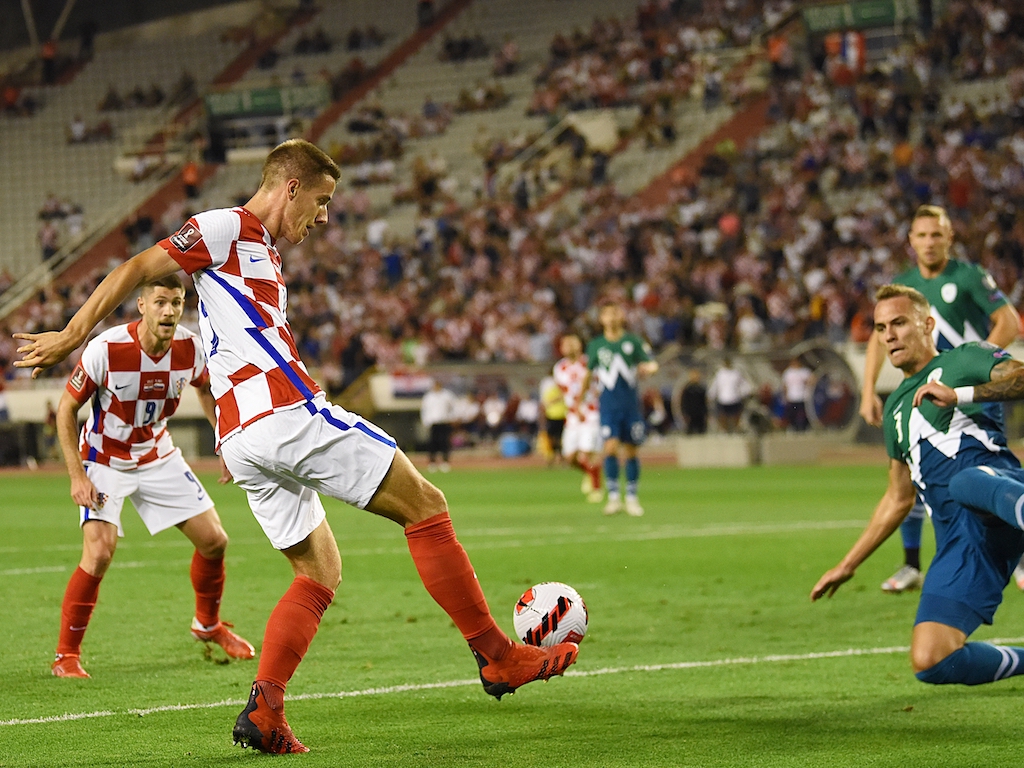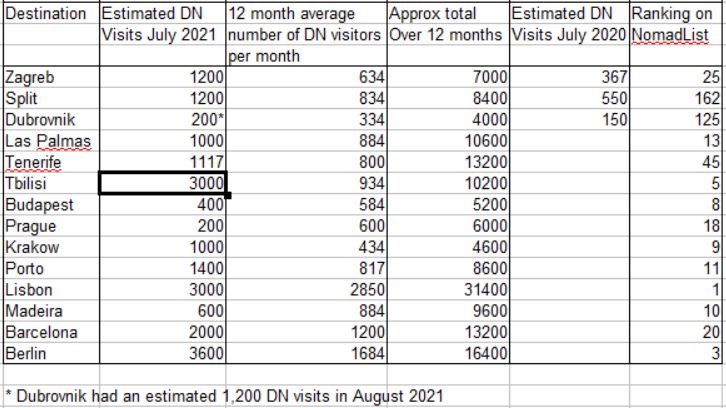Croatia against Russia at Poljud to Decide 2022 World Cup Spot
September 8, 2021 - Croatia against Russia at Poljud Stadium - the match that will decide the winner of Group H and a direct spot at the 2022 World Cup in Qatar.
Croatia completed their September World Cup qualifiers with the victory against Slovenia (3:0) at Poljud on Tuesday, winning seven out of nine points. In the last six days, all three games were played against the main competitors for direct placement in the 2022 World Cup, reports Index.hr.
Croatia must finish the qualifications at the top of the group to directly qualify for the World Cup. Recall, finishing second leads to the most difficult additional qualifications for the World Cup in history. It is important to emphasize that these qualifications for the World Cup are completely different from all others so far. Due to the coronavirus pandemic, the schedule is condensed, so the European part of the World Cup qualifiers is played across eight months, instead of the previous one and a half years. Namely, Qualifications run from March to November this year.
Furthermore, only ten group winners will secure a spot at the World Cup, while ten runners-up will play additional qualifiers. Thus, two winners of the 2020/21 Nations League groups will join those national teams, but only those who did not directly qualify for the World Cup and did not secure additional qualifications as runners-up in the World Cup qualifying groups.
Unlike in the past, during these additional World Cup qualifiers, the national teams will be divided into three groups. Only one knockout match will be played to define which three European national teams ensure their spot at the 2022 World Cup.
Four games before the end, it is clear that Croatia and Russia will decide the winner of the group. Both national teams have 13 points, and one goal only divides them.
Before the qualifications, coach Zlatko Dalić said that he thinks 20 or 21 points will be enough for first place in the group. However, Croatia could again finish in the additional qualifications with 20 points, just like for the 2018 World Cup, when Croatia overcame Greece.
Apart from Croatia, Denmark also went to the playoffs with 20 points, but it is worth noting that in the 2014 World Cup qualifiers, Portugal and Ukraine went to the playoffs, even though they had 21 points each. So Dalić's calculation should not be taken as relevant.
Croatia has 13 points after six games, and by the end of this part of the qualification, four more games will be played from October 8 to November 14.
If Croatia, as expected, beats the two weakest national teams, Cyprus and Malta, it would have 19 points. Still, the decision will fall in Osijek and Split against the significantly stronger Slovakia and Russia. A mitigating circumstance for Croatia is that they play against both national teams at home.
Until the end, Russia's schedule and results will be equally important to Croatia, and the derby will decide the winner of the group in the last round, Croatia - Russia at Poljud
Croatia's schedule until the end of the World Cup qualifiers:
October 8: Cyprus - Croatia
October 11: CROATIA - Slovakia
November 11: Malta - Croatia
November 14: CROATIA - Russia
Russia's schedule until the end of the World Cup qualifiers:
October 8: Russia - Slovakia
October 11: Slovenia - Russia
November 11: Russia - Cyprus
November 14: Croatia - Russia
To follow the latest sports news in Croatia, follow TCN's dedicated page.
To learn more about sport in Croatia, CLICK HERE.
2022 World Cup Qualifiers: Croatia Tops Slovenia 3:0 at Poljud!
September 7, 2021 - Croatia tops Slovenia in their final 2022 World Cup qualifier this month thanks to goals by Marko Livaja, Mario Pašalić, and Nikola Vlašić!
Croatia met Slovenia in their final 2022 World Cup qualifier this month at Poljud Stadium in Split. Around 20,000 spectators were expected for this match, though only those with COVID certificates were able to enter the stadium. Split Police have been vigilant since the morning to avoid any incidents.
Recall, Croatia already played two qualifiers in the last week - against Russia in Moscow, and against Slovakia in Bratislava, taking 4 points.
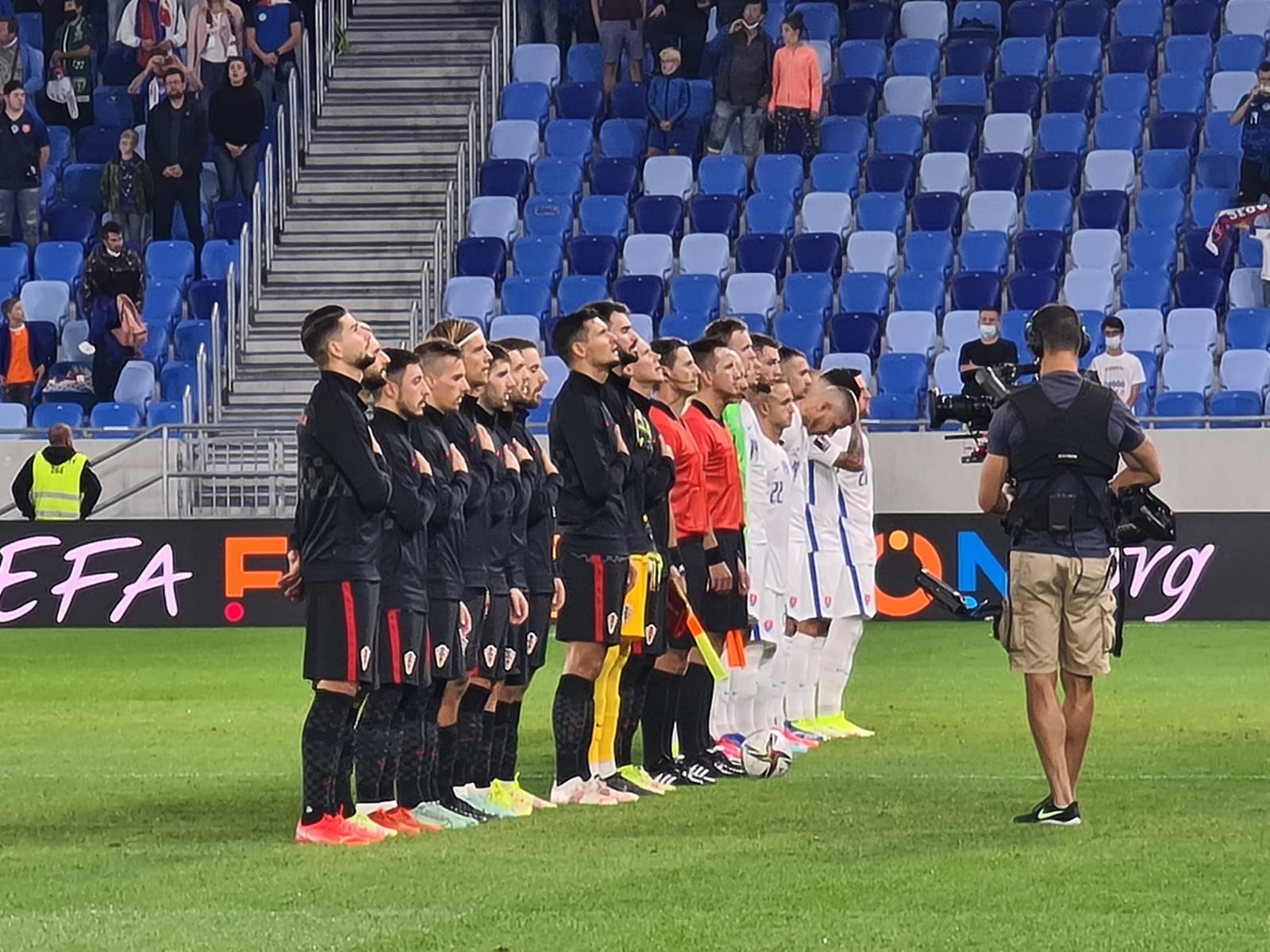
Slobodan Kadic
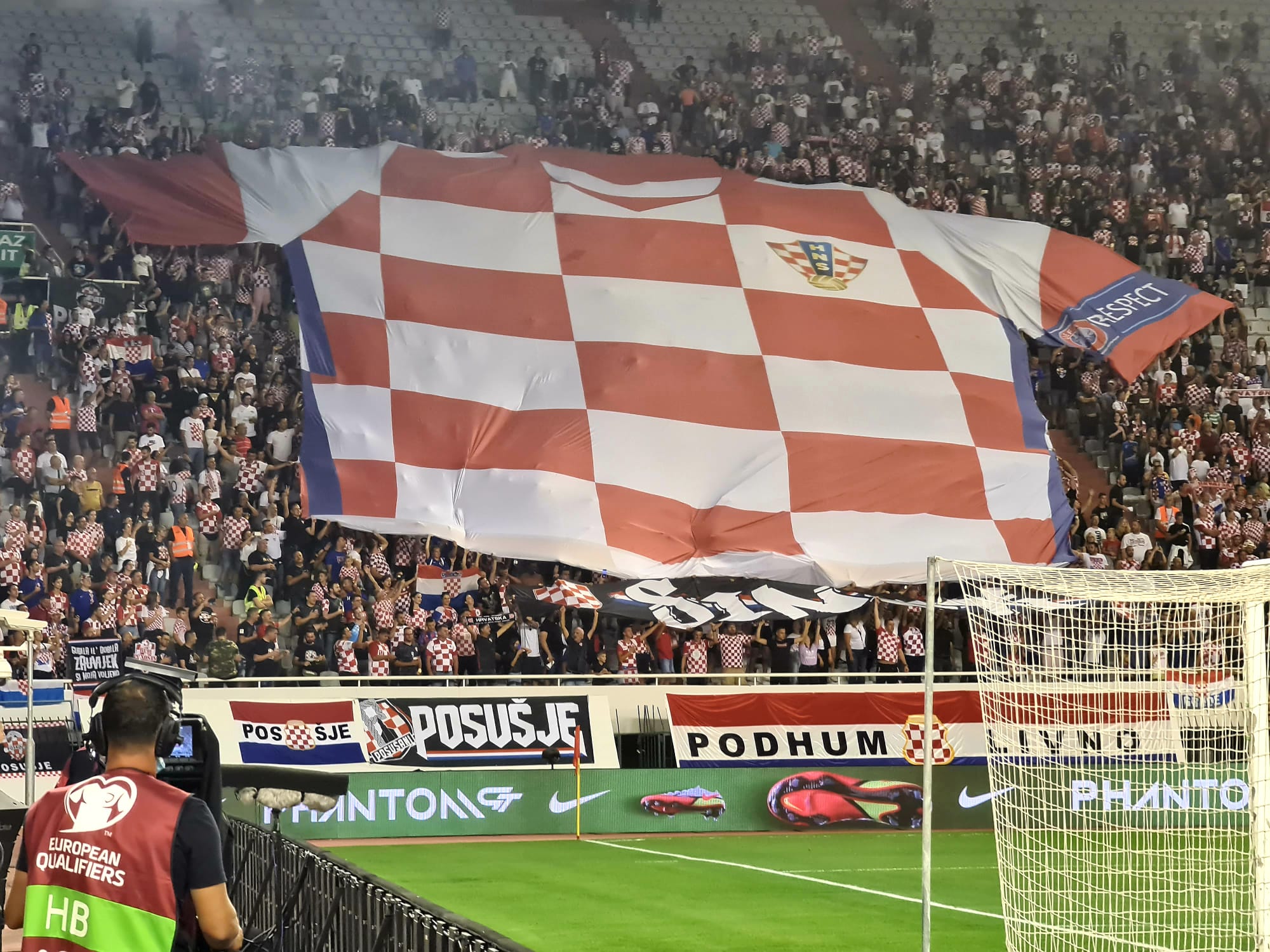
Slobodan Kadic
Lineups:
Croatia: Ivušić, Juranović, Lovren, Vida, Barišić, Brozović, Kovačić, Pašalić, Livaja, Perišić, Kramarić
Slovenia: Oblak, Stojanović, Bijol, Mevlja, Balkovec, Gnezda Čerin, Stanković, Kurtic, Lovrić, Iličić, Šeško
Croatia's first attack happened in the first minute of the match. Ivan Perišić ran the ball up the wing and shot on goal. Andrej Kramarić had a chance two minutes later which went out for a goal kick.
Another attack for Croatia in the 5th minute saw Juranović carry the ball up the right wing to find Kramarić who crossed into the box. Barašić played the ball back in from the left and Pašalić headed to the keeper.
Slobodan Kadic
Croatia's first corner kick came in the 6th minute. The ball ultimately found Barašić who shot over the goal.
Croatia's best chance came in the 9th minute - a Perišić cross made its way to the penalty box with 3 Croatia players in front of the goal.
Another incredible chance for Croatia in the 19th minute - a beautiful play between Kramarić, Perišić, and Barašić found Andrej at the top of the box, though his shot went straight to the keeper.
Another almost goal happened in the 25th minute - Oblak was out of his goal but Livaja was unable to shoot before the ball went out for a goal kick.
Livaja tried his luck and shot from 30 meters out in the 28th minute which Oblak touched out for a corner.
Then it finally happened - Hajduk superstar Marko Livaja scored for 1:0 Croatia in the 33rd minute!
Slobodan Kadic
Pašalić had a chance two minutes later off a corner but headed to the Slovenia keeper.
A cross in from Juranović in the 37th minute found Perišić's head but was an easy save for Oblak. Perišić dribbled up the left wing a minute later but shot over the goal. Oblak made an unbelievable save in the next minute to keep it 1:0.
Croatia was playing really beautiful football, which was a huge improvement from their game against Slovakia. The momentum from the home fans was certainly helping. The match ended 1:0 for Croatia at the half.
Croatia's attacking game did not dwindle to start the second half. Balls were launched into the box from both sides, though Oblak always seemed to find his way there.
Slobodan Kadic
Slovenia was having a hard time making it past the halfway line in the first 10 minutes of the second half.
Slovenia subbed in Hajduk player Jan Mlakar in the 53rd minute.
Zlatko Dalić made his first sub in the 57th minute - Marko Livaja came out for Nikola Vlašić.
Kova dribbled through the Slovenia defense in the 60th minute which went out for a corner.
But it didn't take long for Croatia to get their second goal. A Perišič cross found Pašalić who scored for 2:0 in the 66th minute! Playing at Poljud was certainly giving these former Hajduk stars an extra push.
Slobodan Kadic
Mateo Kovačić was subbed off for Luka Ivanušec, Andrej Kramarić came off for Mislav Oršić, and Dejan Lovren came off for Duje Ćaleta Car in the 76th minute.
Nikola Vlašić nearly had his chance in the 81st minute after dribbling to the goal line but was unlucky in the end.
Ivan Perišić was subbed off for Antonio Čolak in the 85th minute.
Oršić and Ivanušec both had chances in the 88th-90th minutes, but the game remained 2:0. Four minutes of extra time were added.
A Hajduk hattrick tonight became a reality - Nikola Vlašić scored in the final minute of the game for 3:0!
To follow the latest sports news in Croatia, follow TCN's dedicated page.
To learn more about sport in Croatia, CLICK HERE.
Zagreb, Split Attracting More Digital Nomads than Prague, Krakow, Budapest
September 7, 2021 - Finding accurate data about the number of digital nomads visiting individual countries is a hard task, but some solid data extrapolated from Nomad List shows some very encouraging trends for Croatia's emerging digital nomad story.
The first statistic I came across when I started writing about the digital nomad opportunity in Croatia over two years ago was that there would be one billion digital nomads in the world by 2035. This was before the major shift in work patterns brought on by the pandemic, and looking back, I think it referred to remote workers (people working remotely, including at home), rather than digital nomads (those who up sticks and move around, usually to other countries). If the number was a billion before the pandemic, I wonder what it is now.
That vague number has been followed by other vague numbers. Just how many digital nomads are out there, and how many are actually travelling during the pandemic? And where to?
There are, of course, some ways to track some data. The number of applications and approvals for the Croatian digital nomad permit, for example. But this only tells part of the story (the number of people outside the EU who want to commit to living 12 months in Croatia and go through the bureaucratic process during a pandemic). Much more popular (and evident from the various dedicated forums and social media groups dedicated to the subject) is a stay of 1 - 3 months. Finding out accurate data on those numbers is a much harder task, as nomads rarely register themselves as such and so are not easily tracked.
One of the most interesting things I learned about the changing patters of tourism back in May was that in the first 4 months of 2021, more than 25% of AirBnB bookings were for 28 days or more. A good number of those would be worcations, I am sure, with many a digital nomad included therein.
One thing is clear. The future of remote work has arrived, and the trend to live and travel on the road is only going to grow. And once the pandemic is over, and this trend is more mainstream, then it will become a sizable part of some national economies. As I and others have been advocating for some time now, this represents a great opportunity for Croatia. The recent CNBC news feature by American Steve Tsentserensky showcases the financial and lifestyle attractiveness of life in Dalmatia, while showing how a regular nomad pumps US$17,000 into the Croatian economy in 12 months, while also promoting the country for free (the video above has been viewed more than 200,000 times already).
Tsentserensky is one of the 86 approved Croatian digital nomad permit holders, following his successful application after reading about it on TCN. But if less than 100 visas have been issued so far, does that mean that no digital nomads are visiting Croatia?
Far from it!
Nomad List, arguably the leading global digital nomad resource, compiles extensive data on more than 300 DN destinations around the world, including estimated statistics of visitors to a destination by month, year and weighted monthly average. These statistics can be extrapolated from the site. Before we continue, a word on how the data is calculated:
Values shown are estimated visits by traveling remote workers based on the total amount of trips logged by Nomad List members. Visits to a place are only counted once per year per user, even if they visit more in that year. Not all nomads are on Nomad List, and not all Nomad List members log their trips. So the data is only indicative.
But while the numbers may be indicative, the method of calculation is the same across the board for all destinations. This allows us to see how Croatian destinations are performing against other more established destinations. And the results are MORE than a little encouraging, both in the numbers and rising trends for Croatian destinations.
The first piece of good news is that Zagreb is currently ranked 25th as a global digital nomad destination, with an overall ranking of 4.09/5 from 234 reviews, quite an achievement for the Croatian capital, which started its digital nomad campaign with Zagreb Digital Nomad Week back in June. There are three other Croatian cities in the top 200 - Dubrovnik (125), Split (162) and Osijek (165 - no traffic data currently available). This is a higher number than established Canary Islands DN hot spots such as Las Palmas and Tenerife, and almost on a par with the likes of Porto.
And when it comes to Central and Eastern Europe, both Split and Dubrovnik are proving more popular than Prague, Krakow and Budapest (the latter admittedly more affected than most by the lockdown).
Even more encouraging for all three destinations is the rise of the 12-month average number of digital nomads compared to a year ago, with the trend for all Croatian destinations heading the same way. While Zagreb averaged 367 visitors a month when the visa was announced a year ago, that number today is 634. Split was 550 and today is 834, and Dubrovnik too is rising - from 150 to 334.
Both Zagreb and Split had an estimated 1,200 DN visits in July (Dubrovnik has the same in August), according to the NomadList data.
Data from two other destinations caught my eye. The Georgian capital , Tbilisi, is among the most popular places in Europe, with a marked rise in visits. Apart from being a great destination (I lived there back in 1995), it also has a visa and is very competitive on price.
And Madeira also has an interesting digital nomad story, having achieved global interest this Spring with the launch of the world's first digital nomad village. While that provided a huge spike of interest, this seems to have dropped off a little, and its monthly average numbers are similar to Split, which has yet to do anything major in terms of digital nomad promotion.
These numbers, while encouraging, are still small. There are many challenges along the way, not least the pandemic and getting Croatia's message out there. But the data suggests that the foundations are solid, and a dividend from the huge free PR from the digital nomad permit story is already bearing some tiny fruit. A very solid base on which to build.
For more news and features about digital nomads in Croatia, follow the dedicated TCN section.
Ivan Perišić to Captain Croatia against Slovenia: Every Game at Poljud is Special
September 7, 2021 - Croatia national team coach Zlatko Dalić and Inter Milan midfielder Ivan Perišić spoke to the press ahead of Croatia's final September 2022 World Cup qualifier at Poljud on Tuesday. Ivan Perišić will captain Croatia against Slovenia.
Croatia needs a victory at Poljud to increase points after consecutive visits to Russia and Slovakia.
"Certainly, there will be no Livaković in goal; we will not take any risks; Gvardiol is also questionable. I am not inclined to force what I am not sure of, as in the case of Modrić and Budimir. We will go with healthy and ready players. This, after all, was shown by this census at the beginning of the September cycle. Some players played a lot, Sosa, Juranović, Lovren… I'm a little scared to start a game with players who played a lot. We won’t change and invent much because we have nothing. I will say that Livaja will start the game, he has known this for several days, and I expect great things from him; he deserved it with his performances for Hajduk. In what position will he play? Everyone is there to play what is meant for them. Nobody plays a dominant position, even though the media constantly emphasize it," says Zlatko Dalić, who went on to discuss the importance of a victory and the demands of the third game in a week.
"We have to be favorites at our stadium, in front of our fans. Perhaps this will be the most difficult match for us because it is the third in just seven days against an aggressive and combative opponent who beat us in Slovenia. If we do not show the energy from Bratislava and Moscow, it will be difficult for us. However, I doubt that the audience will carry us in our motive, and I believe we will win the match. In which way, it doesn't matter; only the points are important."
Slovenia is no easy opponent.
"Slovenia is not just Jan Oblak. Iličić rested; he is fresh and the biggest danger; he forms an attacking axis with Lovrić, and I expect Mlakar as well. Slovenia will play as much as we allow them and as we position ourselves on the field. We did not let Russia or Slovakia play with pressure; I am delighted with that game segment. We must react well to other opponents' balls again. Problems in the attack? We were a little futile going forward, but these aren’t games to die for in beauty. Points matter, not impressions. I said that I had no objections to what Croatia played, except for that final."
The team will once again be weakened with the absence of Luka Modrić.
"Luka will not be forever; we cannot keep repeating Luka, Luka, Luka. No one can replace him individually; we can only replace him as a team; we must understand that. He started training; he will be with us in October. We have to get rid of that rumor so that we can play without the captain, who we miss a lot."
There will be no lack of support at Poljud, and well-filled stands are expected.
"The support of the audience will be important to us. We remember Hungary and the fantastic atmosphere that reigned at Poljud during that match. It was an atmosphere that gave you chills. However, since I was the coach, where the point was that we played, it was beautiful for us, in Osijek, Rijeka, Zagreb… Regardless of what someone wants to do that is worthless, the Croatian people recognize the good. Therefore, I expect great support from the stands, and we will try to thank you with three points," concluded Dalić.
Ivan Perišić will lead Croatia as captain against Slovenia. Ivan is aware that the victory against Slovakia in Bratislava additionally raised the self-confidence of the national team.
"The atmosphere is great after the victory in Slovakia; it gave us extra energy. We did well in the matches against Russia and Slovakia, we did not concede a goal, and we can be satisfied with two of perhaps the most difficult away games. However, if we don't beat Slovenia, it won't mean much," said Perišić, who spoke about the hard September rhythm of these matches.
"The rhythm is tough; everything happened in a short time, it will be a little easier in October and November, but then we will already have two games a week with our clubs. Whoever survives will talk, ha, ha, ha… However, we have 25 players so that the coach can choose and distribute the forces. The skeleton of the team is there; the younger players already have a lot of serious games, they give us extra strength."
Ivan spoke about the course of the match against Slovenia.
"We will start from the first minute to score; it will be easier if we open them at the start, as was the case against Hungary at Poljud. We definitely need to improve our attack, and we need more time for that. Poljud? Every game at Poljud is something special; it means a lot to me, family, friends, we can't wait for it to start."
Source: HNS
To follow the latest sports news in Croatia, follow TCN's dedicated page.
To learn more about sport in Croatia, CLICK HERE.
Times Higher Education Rates University of Split Best in Croatia
September 6, 2021 - Great news for education in Dalmatia as Times Higher Education rates University of Split the best in Croatia!
In the latest World University Rankings, published on September 2, 2021, the University of Split achieved the best result at the national level. In the world, it was ranked between 1001st and 1200th place, reports Slobodna Dalmacija.
Since this type of evaluation was first conducted in 2011, the number of participating higher education institutions has grown from 200 to as many as 1,662, with more than 2,112 institutions submitting ranking data this year, representing over 100 million citations to more than 14 million scientific papers and a survey of over 22,000 scientists, said the University of Split.
In this pandemic year, when universities have faced many challenges, the greatest progress has been made by Chinese universities, and a significant increase in several categories has been achieved for several years by universities in Saudi Arabia, Egypt, Pakistan, Malaysia, and Indonesia.
This year, the University of Split achieved an increase in the number of points in as many as four of the five areas that Times Higher Education applies in the evaluation: Teaching, Research, Revenue from Industry, and International Cooperation. It is worth noting that citations are the best-rated area.
Furthermore, the University of Split has again achieved success on the NTU (National Taiwan University) scale, which since 2007, traditionally publishes the university evaluation "Performance Ranking of Scientific Papers for World Universities."
The ranking is based on 3 parameters: Research Productivity, Research Impact, and Research Excellence, which rely solely on the quality and impact of scientific papers indexed in the Web of Science and ESI Clarivate (Essential Science Indicators) database.
This year, the University of Split is ranked between 651st and 700th in the world, while based on the quality and impact of scientific publications, the field of life sciences, it is positioned in the range from 401st to 450th place, and in the field of natural sciences between 451st and 500th place.
For more on lifestyle in Croatia, follow TCN's dedicated page.
Croatian Language Scholarship: Ten Things You Need to Know Before Arriving
September 6, 2021 - With the final list of the Croatian language scholarship recipients already published, many are packing their bags and others are already exploring Croatia before starting their classes. However, some still wonder about many things related to the course. What should they know before arriving?
On May 14th of this year, the Central State Office for Croats outside the Republic of Croatia announced the call to apply for the scholarship to study the Croatian language in four cities: Zagreb, Split, Rijeka, and Osijek. Applications were closed on June 14th, and the first list of scholarship recipients was published at the end of July. Later, after seven days of appeals by those who did not appear on the first list and others who desisted, a second and final list was published on August 17th.
Although the exact dates for the start of classes are not yet confirmed, it is expected to take place in the first week of October. We wish it were as simple as going from the airport to your desk and starting your Croatian language classes, but there are many things you should take into account before and when you arrive in Croatia (if you are traveling for the first time). Before we begin with the list, it is important to add at this point that there are three contacts with whom you will communicate before, during, and even after your participation in the course, and all three are in charge of different aspects of the scholarship. One is the Central State Office for Croats outside the Republic of Croatia, which is a government body that finances and organizes scholarships to study the Croatian language in the Republic of Croatia. The second is the Croatian language studies department at the Faculty of Philosophy of the city to which you have applied. Finally, you will also communicate with the accommodation in which you will stay during your studies.
Without further a due, here are ten things to keep in mind:
1. Confirm your participation in the course
After seeing your name once the first list was published in July, you probably took your participation in the course for granted. Although it is true that being on the list means having obtained a place to study the Croatian language in Croatia and access certain benefits, it is necessary to confirm your participation, as sometimes it happens that some do not show up or withdraw from their participation. So that the Office in charge can properly prepare the logistics behind the course, make sure to check your mail (both in your inbox and in the spam box). You will find an email asking you to confirm your participation in the course, as well as other instructions.
Weeks prior to your arrival you will receive emails with information about your classes, such as your schedule or classroom. In some cases, you will be asked to take a pre-test online to determine your current level of Croatian. Don't worry, it's just to get an idea.
Note: if you have not received a confirmation email, be sure to write to This email address is being protected from spambots. You need JavaScript enabled to view it. and confirm your participation, as well as ask for additional information about the scholarship.
2. Confirm your accommodation
As well as confirming your participation in the Croatian language course scholarship, you will also need to confirm your accommodation, if you qualify for it. The Croatian language scholarship includes a stay in student accommodation in your city, but places are limited. A number of accommodation places have been assigned by each city. For example, 50 places were assigned for accommodation in Zagreb, and to find out if one corresponds to you, you must check your order in the final list of the Croatian language scholarship recipients. If you are in the top 50 on the list for Zagreb, you will most likely have an accommodation quota. Why do I say "most likely"? Because it must be taken into account that:
a) The accommodation right is only given to those younger than 36.
b) Not everyone asked for accommodation on their applications.
That is why we recommend you check your email for any communication from the student accommodation office of your city, in which they will inform you that you are part of the list of those to stay in student accommodation. If not, write an email to the Central Office as in the previous point, since they are the ones who determine the list of students to stay in the student accommodation.
Note: if you have received an email from the student accommodation office, in addition to requesting a confirmation, they will also ask you in advance to indicate the date you plan to check in. Likewise, some student accommodation may request a medical certificate, the format of which will be attached in the mail, and which must be filled out by your doctor or pediatrician. Do not forget to fill it out and bring it printed to do your check-in.
3. Bring all your documentation
During the months prior to the start of the Croatian language course, you have surely gathered a large number of documents and papers that served you for your application. Well, although it is very likely that you will not need them again, we do strongly recommend that you organize a folder in which you archive all the documents related to Croatia. Not only can an unexpected or unforeseen situation arise, but you will also need them if you decide to apply for one more semester of the Croatian language course while in Croatia if you previously only applied to one.
We recommend you have a digital folder, and another with all your printed documents. Some of the things you can bring are:
- Original and copy of your passport (of your country of birth and Croatian, in case you have the latter).
- Original and copy of your ID (from your country of birth and Croatian, in case you have the latter).
- Driver's license (you can use the one from your country for a year, then you will have to change for a Croatian one at the Police Station).
- Criminal records (apostilled).
- Medical history (translated, preferably).
- Information and details of your international health or travel insurance.
- ID size photos (useful to get your public transport card and other procedures).
Any other documents that you consider convenient to bring, especially those that must be apostilled, we recommend that you include them since it will be difficult to get them later once you are in Croatia.
Every year, many students take advantage of their stay in Croatia to obtain their nationality and/or citizenship (passport). If this is your case, take into account the necessary documents to apply to each one, and be sure to include them in your folder. We recommend you bring:
- Croatian nationality papers (yours, if you have them).
- Croatian nationality papers from your closest Croatian relative (father, grandfather, great-grandfather, great-great-grandfather, etc).
- Your original birth certificate (apostilled, translated, current and notarized if he is a foreigner).
- The original birth certificate of your closest Croatian relative (father, grandfather, great-grandfather, great-grandfather, etc).
- Your passport (original and copy).
- Your ID (original and copy).
- A valid identity document with a visible photo (and an apostilled, translated, and notarized copy).
- Criminal record certificate (no more than 6 months old, apostilled, translated, and notarized).
- Your biography (translated into Croatian and including the reasons for your application).
Note: depending on your case, they may request all these documents, only some or other additional ones. For more information on applying for Croatian nationality and citizenship, check out this guide made by Sara Dyson, from Expat in Croatia, approved by an immigration lawyer and the ministry that approves nationality and citizenship. You can also check the information given by the Ministry of Interior (MUP) in Croatia HERE.
4. Check-in at your accommodation
The first thing you will want to do when you arrive in Croatia if you have confirmed your stay in the student accommodation is to check in and settle in. After the whole trip, and with so many suitcases on top, it is best to rest and organize yourself before moving on to the next thing. For this, it is necessary to have agreed to your arrival date by email with the office of your student accommodation. It may be that in some cases they tell you that it can be done only with some anticipation, both in days and in hours. For example, if your plane arrives on a Sunday afternoon, you may need to spend the night elsewhere and check in first thing in the morning on Monday. In case you haven't booked your flight yet, the wisest thing would be to fly a few days earlier.
Next, we indicate the address and location of the student accommodation in each city. If you have everything agreed with the office, go to the reception of your accommodation to present your documentation, for checking in, and receiving your room key and accommodation contract.
Zagreb
- Studentski Dom Ante Starčević
Zagrebačka avenija 2, 10000 Zagreb
email: This email address is being protected from spambots. You need JavaScript enabled to view it.
Box office: 01 4590 841, Management: 01 4590 843
Manager: Damir Mikulić, tel. 01 4590 842
Reception / port of the student settlement: 01 4590 840; 091 4593 539
(working hours: 0 - 24h)
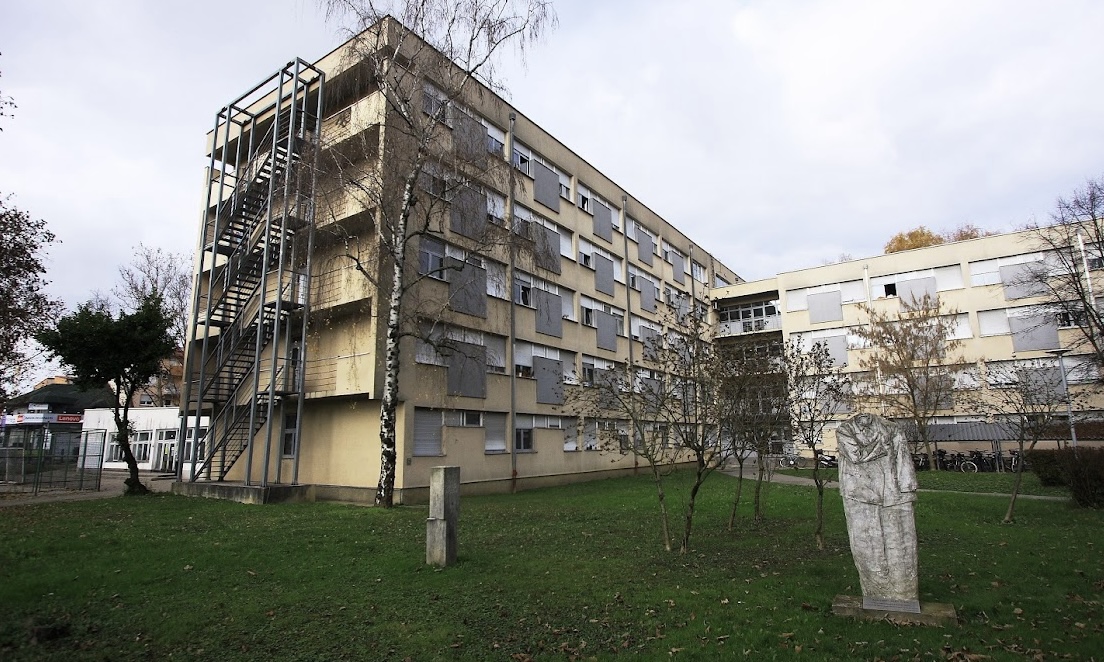
Student Accommodation Ante Starčević (Photo: Pavle Miljovski)
- Studentski Dom Stjepan Radić
Jarunska 2, 10000 Zagreb
e-mail: This email address is being protected from spambots. You need JavaScript enabled to view it.
Tel. administration: 01 45 90 801, cashier: 01 45 90 811, fax: 01 30 15 946
Manager: Boženko Ćosić, tel. 01 45 90 802
Reception / port of the student settlement: 01 4590 800; 091 4593 536
(working hours: 0 - 24h)
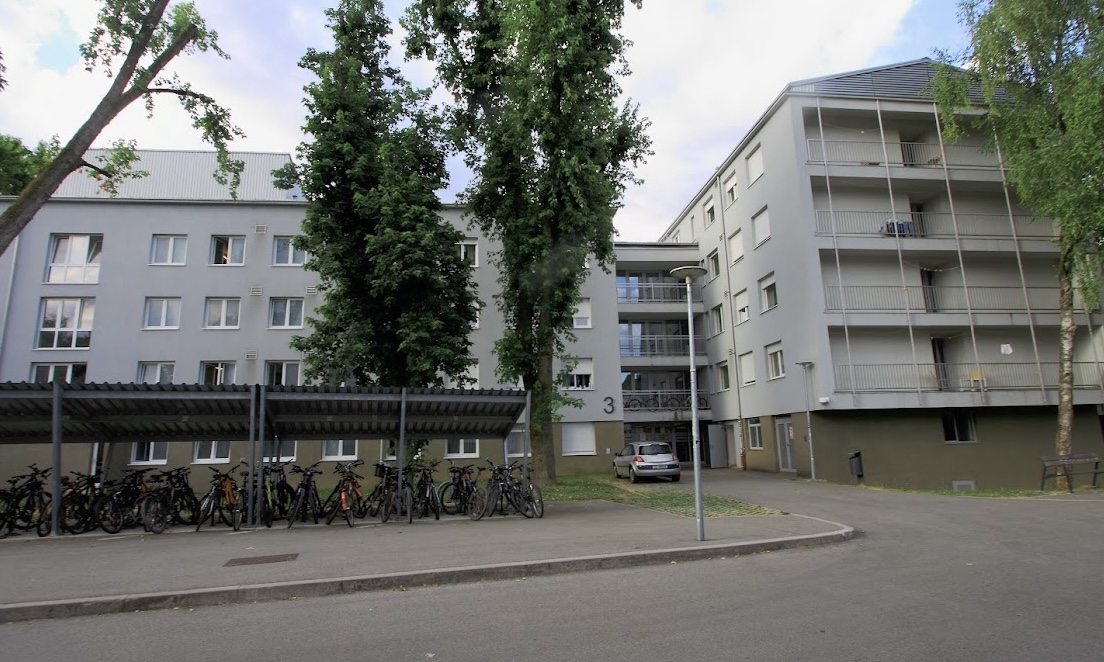
Student Accommodation Stjepan Radić (Photo: Pavle Miljovski)
Split
- Dom Kampus Dr. Franjo Tuđman
Cvite Fiskovica 3, 21000 Split
Tel: 021 / 440 - 999, fax: 021/440-958
e-mail: This email address is being protected from spambots. You need JavaScript enabled to view it. (accommodation hostess)
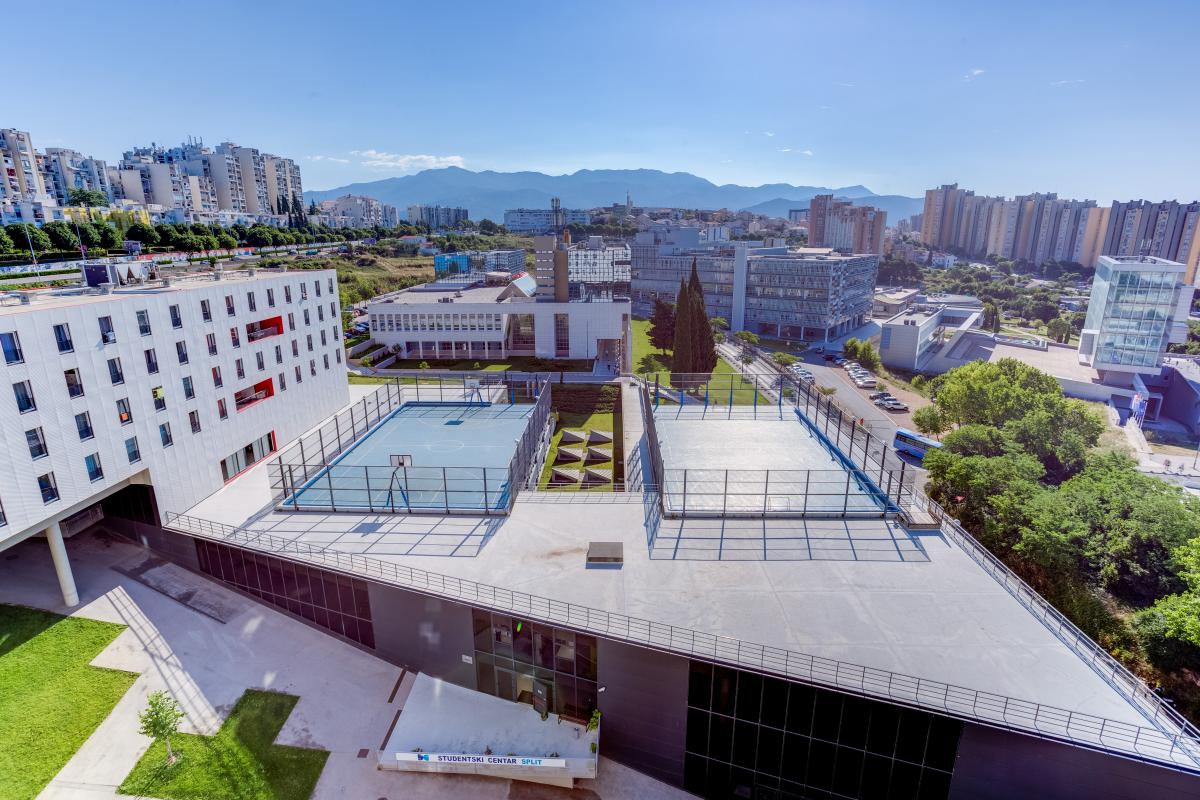
Student Accommodation Franjo Tuđman (Photo: Split Student Center)
- Studentski dom "Bruno Bušić"
Spinutska 37, 21000 Split
Tel. 021 / 510 - 850
e-mail: This email address is being protected from spambots. You need JavaScript enabled to view it.
e-mail: This email address is being protected from spambots. You need JavaScript enabled to view it.
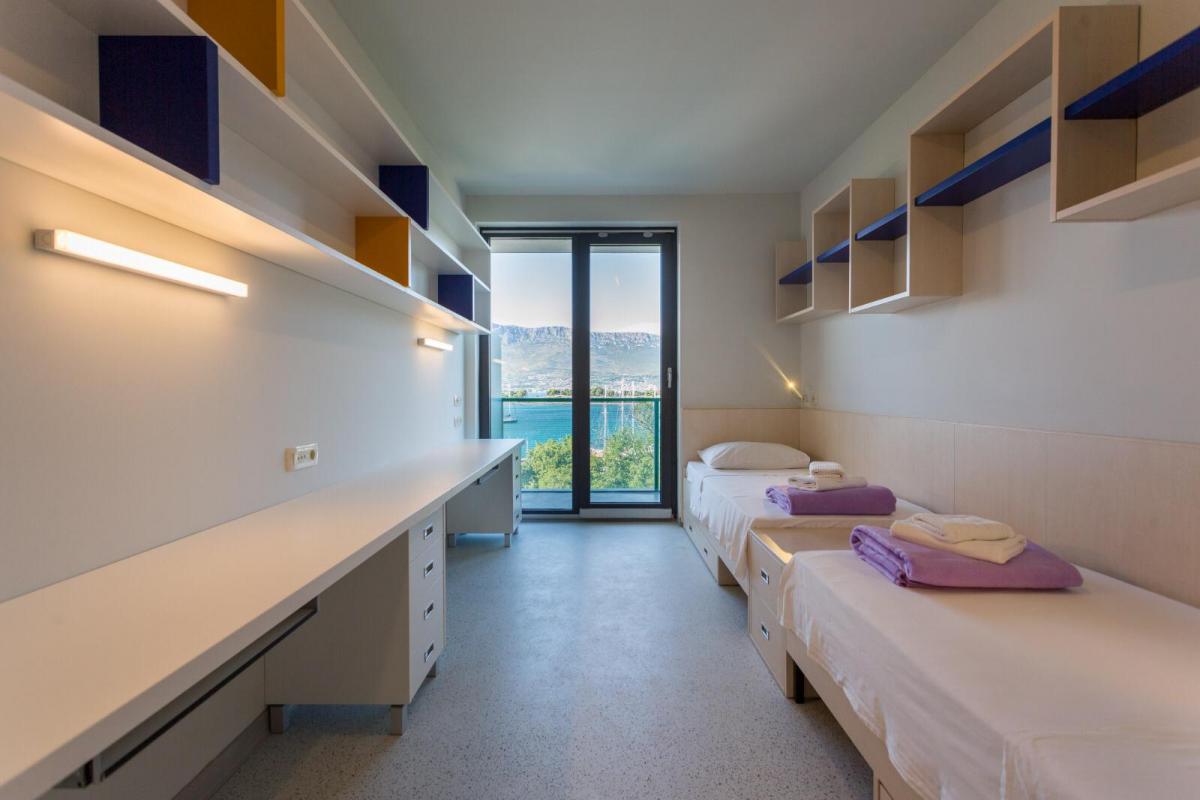
Student Accommodation Bruno Bušić (Photo: Split Student Center)
- Studenski dom Hostel Spinut
Spinutska 39, 21000 Split
Tel: 021/386-711, 021/386-733, fax: 021/386-774
e-mail: This email address is being protected from spambots. You need JavaScript enabled to view it. (receptionist)
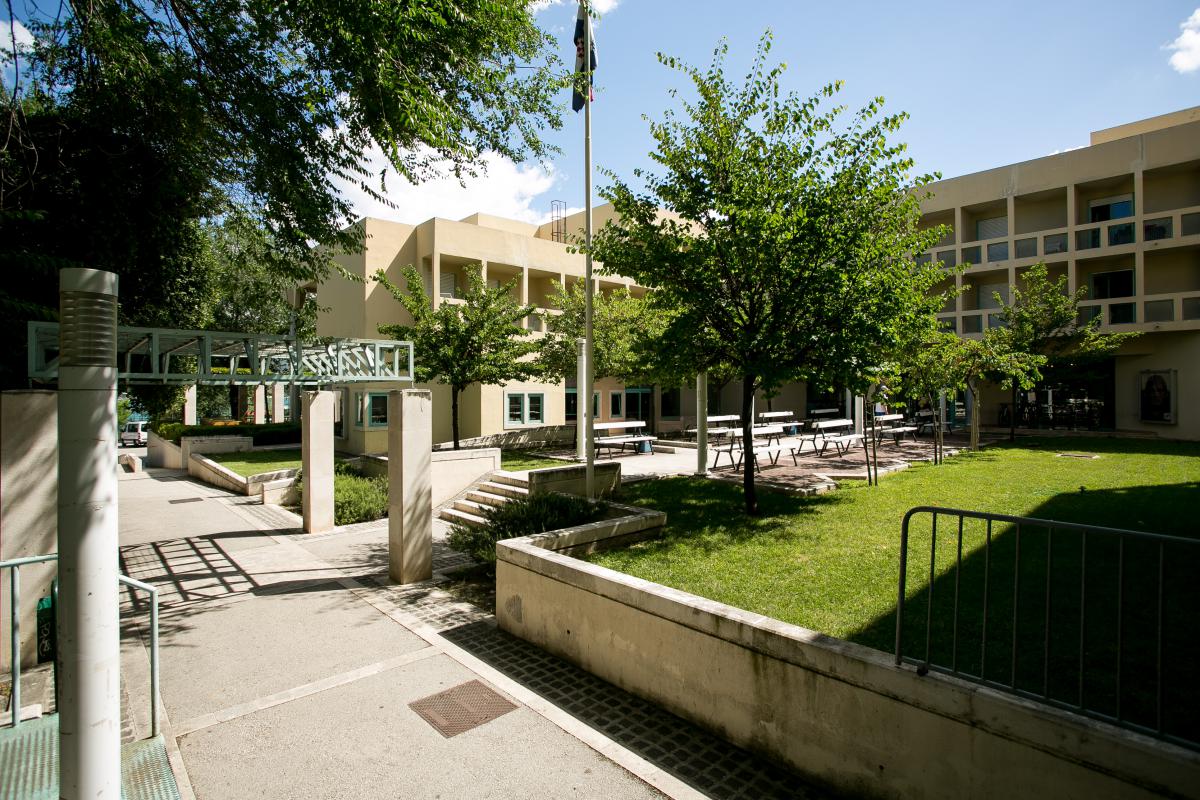
Student Accommodation Hostel Spinut (Photo: Split Student Center)
Rijeka
- Studensko Naselje ''Trsat''
Ul. Radmile Matejčić 5, 51000, Rijeka
e-mail: This email address is being protected from spambots. You need JavaScript enabled to view it. / Student Center: This email address is being protected from spambots. You need JavaScript enabled to view it.
Tel. +385 51 584 530
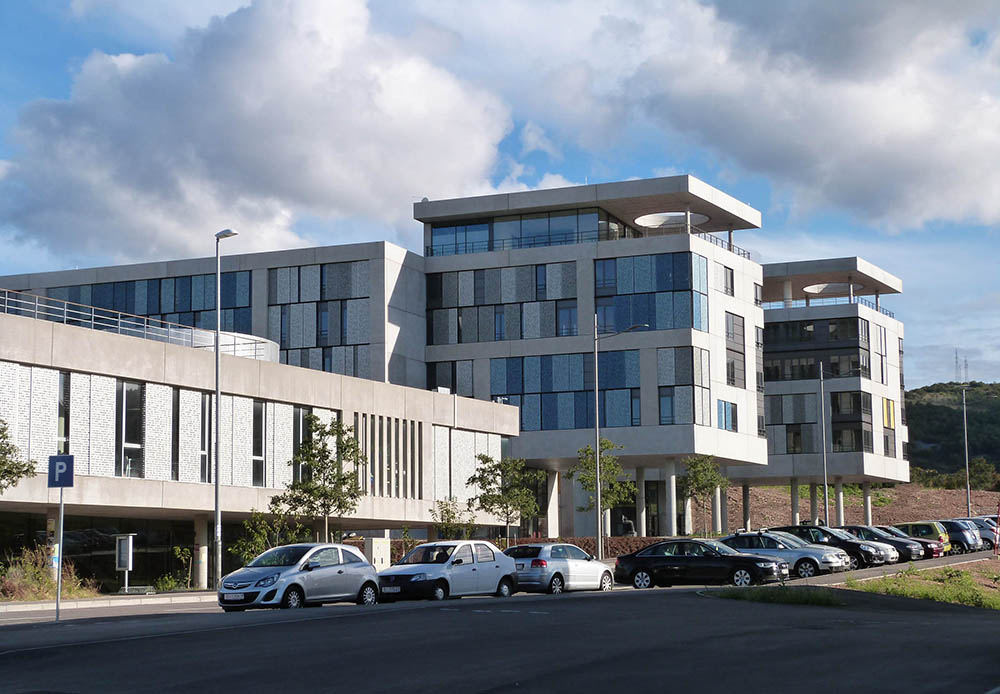
Student Accommodation Trsat (Photo: Rijeka Student Center)
Osijek
- Studentski Dom IGK
Ivana Gorana Kovačića 4, Osijek 31000
Phone: Management - (031) 574 002
Reception - (031) 574 269
Working hours of the administration: from 7-15 hours
work with clients 08-14 hours
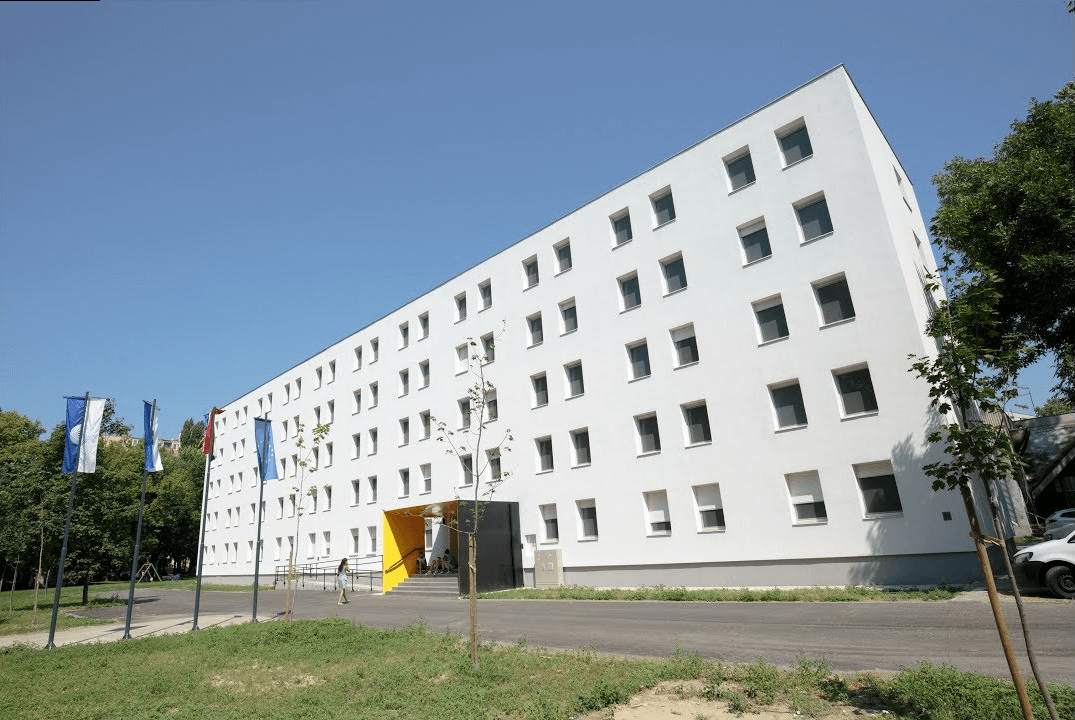
Student Accommodation IGK (Photo: Osijek Student Center)
- Studentski Dom K.P. Svačića
Kralja Petra Svačića 1C, Osijek 31000
Phone: Management - (031) 251 121
Reception - (031) 251 120
Working hours of the administration: from 7-15 hours
work with clients 08-14 hours
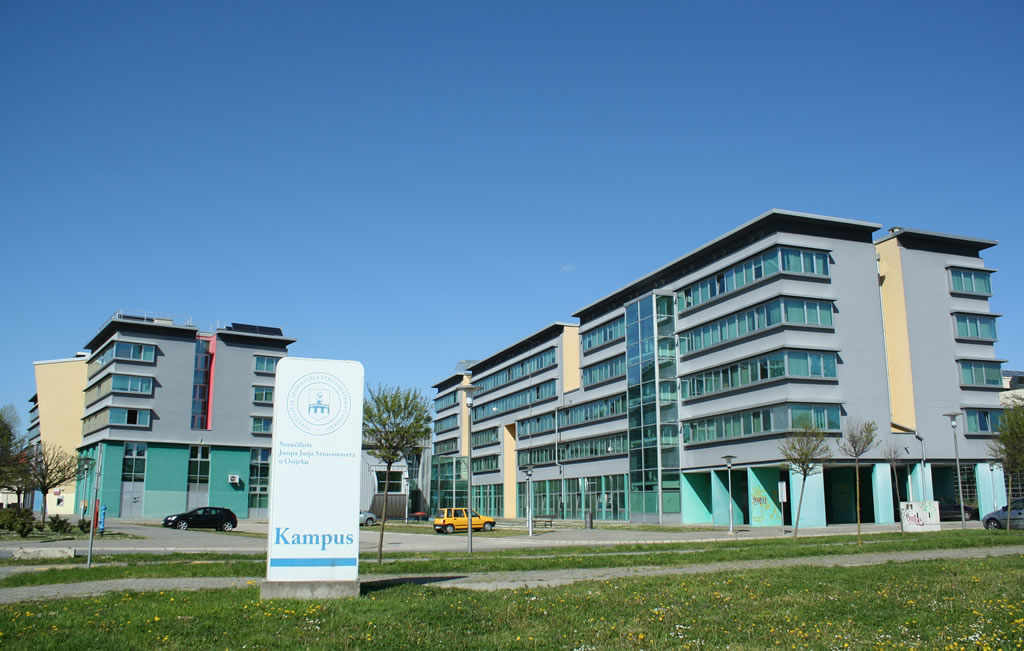
Student Accommodation K. P. Svačića (Photo: Osijek Student Center)
Do not forget to bring your medical certificate in case they have previously requested it by mail. You must also present your passport to be identified. You will be asked to fill out a form related to COVID-19 and sign a contract. Once registered, they will give you your keys and indicate your pavilion and bedroom. In some accommodations, such as in Rijeka, they will give you directions for the use of other facilities such as the laundry, gym, and library.
Note: Remember that student accommodation in Croatia CANNOT be used for self-isolation. It is also prohibited to consume alcohol or drugs inside the accommodation. Doing so may mean your expulsion from the scholarship and not being able to apply again in the future. Remember, when you come to Croatia you are a representative of your country.
5. Formally enroll in the course at the Faculty of Philosophy
Once you have checked into your accommodation and taken a good rest, go to the Faculty of Philosophy in your city, to officially enroll in the Croatian language course. In each Faculty, there is the department in charge of organizing the Croatian language course in that city, and they will provide you with the necessary information about the course, as well as some documents that will be useful to you. We recommend that you attend the Faculty early to enroll since in many cases they only work until 1:00 p.m. or 2:00 p.m.
You will have to ask them about the public transport card, and they will give you a student document and instructions to acquiring it at the public transport office in your city. Also, ask them about the WiFi, and they will give you your username and password that can be used both in the building of your Faculty, as well as in your accommodation and in various parts of the city.
Remember when I mentioned above that you organize all your documents in one folder? It would be a good idea for you to take it to the Faculty at the time of enrollment, they will surely ask for an ID and probably passport-size photos.
The Croatian language course is organized at the Faculty of Philosophy in Zagreb, Split, Rijeka and Osijek, and is conducted by the Center for Croatian as a Second and Foreign Language "Croaticum" (Zagreb), the Center for Croatian Studies in the World (Split), Rijeka Croatian School (Rijeka) and the Department of Croatian Language and Literature (Osijek).
Depending on your city, this is where you should head to:
- Zagreb: Ul. Ivana Lučića 3, 10000, Zagreb / http://www.ffzg.unizg.hr/centar / +38514092111 (On Google Maps)
- Split: Poljička cesta 35, 21000, Split / http://www.ffst.unist.hr/ / +38521386122 (On Google Maps)
- Rijeka: Sveučilišna Av 4, 51000, Rijeka / http://www.ffri.uniri.hr/ / +38551265600 (On Google Maps)
- Osijek: Ul. Lorenza Jagera 9, 31000, Osijek / https://www.ffos.unios.hr/ / +38531211400 (On Google Maps)
Note: the Croatian language scholarship includes the two subsidized meals, and for this, you will need a card that will be provided by the Central Office of the State for Croats outside the Republic of Croatia, through the Croatian language department in your Faculty. Unfortunately, it is unlikely that you will receive it on the first day or even in the first few weeks, so you will need to be patient. Eventually, it will be your teacher who will give you your card.
6. Register your address at the police station
Something essential and that depends largely on you, is to register your residence in Croatia. Although there are students with a Croatian passport, this is not an exception to do so, because in Croatia it is mandatory to have a registered residence and address, and this information does not appear in the passport. Likewise, those who do not have a passport should even more so register their residence since the duration of the course exceeds 90 days of free transit through the country as a non-EU citizen.
The Central State Office for Croats outside the Republic of Croatia, through your Croatian language department in your Faculty, will provide you with a study contract for the scholarship that you will need to bring to the police station in your city. In addition, you must bring your original passport and the accommodation contract that you were given when you check-in at your student accommodation (or in case you have stated elsewhere, a valid accommodation document or contract).
Like the meal card, the study contract can take a few weeks to be delivered, so you must be patient and, as soon as you receive it, go to the police station.
The police stations in each city are as follows:
- Zagreb: Ul. grada Vukovara 33, 10000, Zagreb (On Google Maps)
- Split: Trg Hrvatske bratske zajednice 8, 21000, Split (On Google Maps)
- Rijeka: Ul. Žrtava fašizma 3, 51000, Rijeka (On Google Maps)
- Osijek: Trg Lavoslava Ružičke 1, 31000, Osijek (On Google Maps)
For those interested in applying for their citizenship or passport, this is a vital step to achieve it, since these procedures (especially that of citizenship) can take several months, even longer than a semester of studies lasts. In addition, if you do not have a permanent or temporary residence in Croatia, the Ministry will simply reject your application. Therefore, those without a Croatian passport will have to apply for a one-year temporary residence in Croatia and to achieve this you will need to present the aforementioned documents at the police station, including the study and accommodation contract. Remember then that before applying for citizenship, you must first apply for temporary residence. Unfortunately, both cannot occur in parallel, and you must first receive the resolution of your approved temporary residence before applying for citizenship.
Note: it is highly recommended to organize yourself and be clear about where you will spend the year in which you process your citizenship. For example, if you really believe that you will spend a year in Zagreb studying the Croatian language, apply for temporary residence and your citizenship in that city. Another example is of someone who applies for a first semester to Split, and at that time they apply for temporary residence. Then, they decide to apply for a second semester in Osijek, while they wait for the resolution of their temporary residence. This is not recommended as the police consider your address to be in Split, not Osijek. This could affect obtaining your temporary residence or your citizenship.
7. Open a bank account
While opening a bank account is important in any circumstance, as a scholarship student you have an additional reason to consider it. If you stay in student accommodation, you will have to pay the cost of accommodation on a monthly basis (the amount depends on the accommodation). You should go to your accommodation office at the beginning of the month and make the payment.
"But didn't the Croatian language scholarship include free accommodation?" Yes! Compensation for accommodation will be paid to you after you submit the following documents:
- certificate from the Faculty of Philosophy on successfully completed course,
- a Žiro account agreement (not a current account), in your name, concluded with any commercial bank in the Republic of Croatia, with the indicated giro account number (IBAN),
- certificate (certificate) of the Ministry of the Interior of the Republic of Croatia (MUP) on your residence/stay in the Republic of Croatia, with the stated address of the student settlement.
- One of the attached documents should also show your personal identification number (OIB).
Once you obtain your accommodation contract, which will be given to you the day you check in at your student accommodation, take that contract along with your passport to the bank of your choice, and in addition to a current debit account, you must also request a Žiro account (pronounced: SHI-ro). At the end of the course, you must send the IBAN (account number) of your Žiro account to the Central State Office, to receive compensation for your accommodation.
Note: to open an account in a Croatian bank it is not necessary to have permanent residence in the country or Croatian citizenship. All you need is an OIB (Osobna Iskaznica Broj) identification number. If you have a Croatian passport or ID, you will find this number in either of the two. If you don't have an OIB number, you will need to get one. To find out how to obtain an OIB number, check out this Expat in Croatia guide, which includes the form to fill out and all the necessary steps. Remember that you will also need your OIB to request accommodation compensation at the end of the course.
8. Buy your study materials
To study the Croatian language you will need a learning book and an exercise book. Don't worry if you still don't have your books to study the Croatian language as soon as you arrive. Usually, your teacher will provide you with copies in the first few days, and it is he or she who you can ask where to get them. Remember that you will not be given copies for the entire semester! Most likely, your faculty has its own bookstore, where you can buy your books to study Croatian.
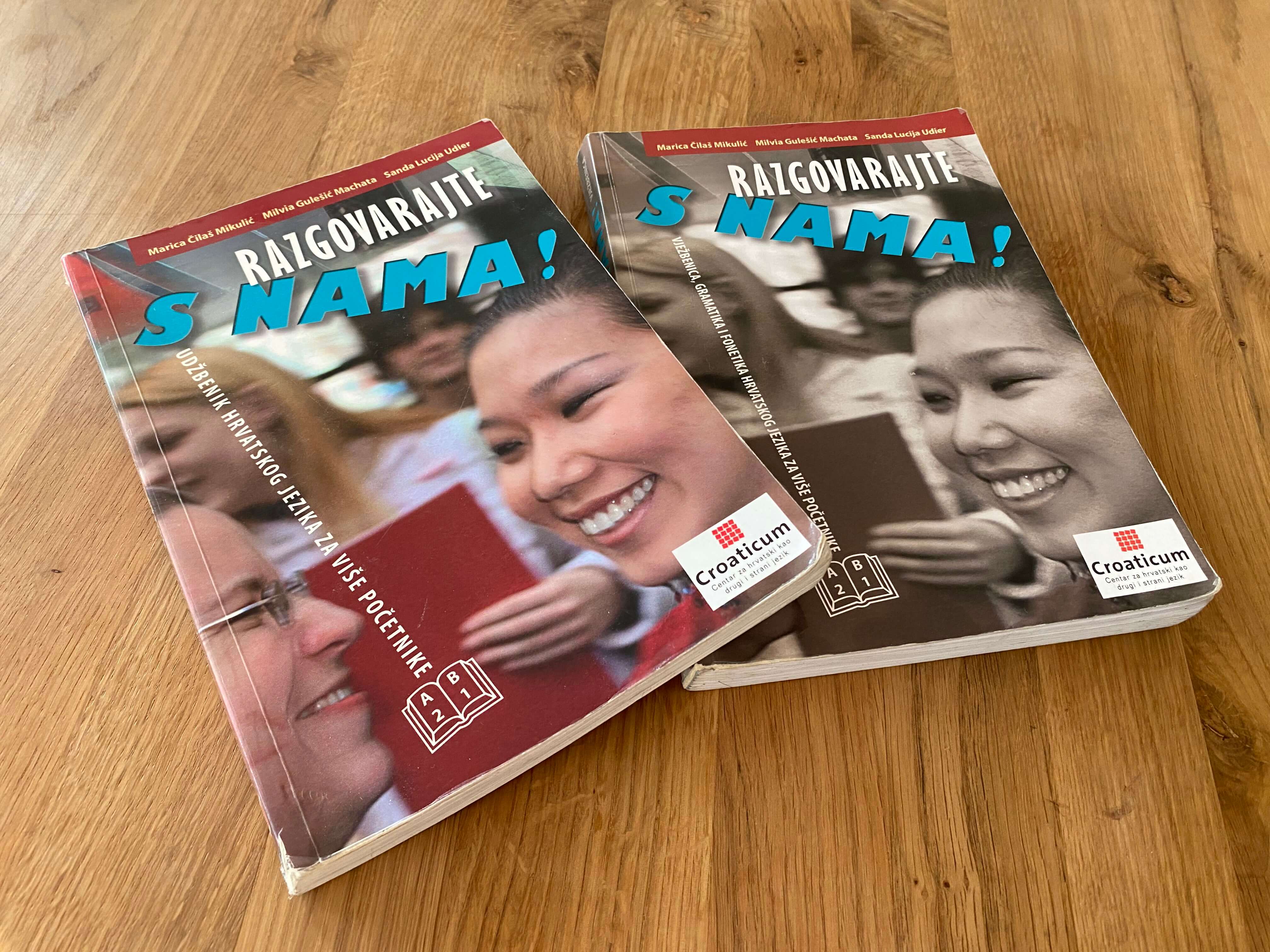
The learning book on the left, and the exercise book on the right. These books are for the A2/B1 level. (Photo: Jose Alfonso Cussianovich)
Take good care of your books, as they can be useful even after studying the course. The learning book includes a Croatian to English dictionary on the final pages, and the exercise book includes tables of contents at the end for easy review of rules for declensions, conjugations, and more.
Note: make sure that the books you buy correspond to your learning level. If this is your first time studying the Croatian language, you will most likely need to buy the A1 / A2 level books.
9. Respects health measures against COVID-19 in your accommodation and faculty
Despite the difficulties and obstacles due to the COVID-19 pandemic, the Central State Office for Croats outside the Republic of Croatia managed to develop the scholarship for the Croatian language course in the March-June 2020 semester, the semester from October 2020 to January 2021, and the semester from March-June 2021.
The only possible way to develop the Croatian course was through online learning, thus respecting the measures and restrictions imposed by the Croatian government. As the epidemiological situation began to improve over time, some faculties such as Zagreb and Split returned to face-to-face classes for the March-June semester of 2021. It should be noted that in order to develop face-to-face classes normally, the use of masks, as well as the reduction of the number of students per class, and distribution of seats in the classroom that respects social distancing.
It is expected that this year all the faculties will return to face-to-face teaching, but that means respecting, in the same way, the epidemiological measures to combat the pandemic. Masks are mandatory. Through the call made by the Central State Office in May, a special call was made to the selected students to reconsider the possibility of traveling to Croatia and that, as an alternative, they could still take the language course online from their countries.
During the study time of the course, it is recommended to avoid attending classes in case you feel fever, malaise, or cold. Notify your teacher and classmates by mail if you suspect you may have COVID-19. Take a PCR test to rule out that you have COVID-19. If it is negative, communicate with your teacher and classmates so that they are calm. If it is positive, contact the health center and your accommodation, and follow their instructions to be transferred to other facilities where you can perform isolation during your recovery. Remember, student housing cannot be used, under any circumstances, as a place for self-isolation.
In case you feel ill or feel obliged to miss class, let your teacher know in advance and you will see that it is possible to attend class online from your room.
IMPORTANT: If you have already been vaccinated, it is important that you provide this information to your accommodation when registering upon arrival. We also recommend you go to the HZZO (Croatian Health Institute) and ask for the COVID Passport, which is a QR code that will begin to be requested on a mandatory basis throughout the country to attend different events or places.
Note: If you have not yet been vaccinated and want to do so, contact the Central Office of the State, and it is very likely that they will help you get a vaccination appointment in your city.
Note: Do not forget to wear a mask in the corridors of your accommodation and faculty.
For all you need to know about coronavirus specific to Croatia, including travel, border, and quarantine rules, as well as the locations of vaccination points and testing centers across the country, make sure to bookmark our dedicated COVID-19 section and select your preferred language.
10. Get everything ready for your trip to Croatia!
Weather in Croatia
Now that you know everything you need to know before traveling to Croatia and attending your Croatian language classes, get ready for the months to come! You will surely attend the semester from October 2021 to January 2022, for which I will tell you what is the climate that awaits you in the Croatian autumn and winter.
If you attend classes in Split or Rijeka, you will find yourself in the second and third largest cities, respectively, in Croatia, and both are located on the Adriatic. In October you will find warm and sunny days where the temperature can reach up to 20 degrees, as well as cold but not icy nights, with temperatures that drop to 14 degrees. It is possible to take a dip in the sea during this month! However, it is likely that at this time of year (especially in these two cities) you will find rains, winds, and storms that begin to appear more frequently. In Zagreb, located in central Croatia, and Osijek to the east, the weather may be similar, but surely less sunny.
Starting in November you will notice that the temperatures will begin to decrease progressively (17 degrees max, 10 degrees min), and the sunny days will become less frequent. You will get used to the strong winds and rain. Already in December and January, you will start to wrap yourself more warmly against the cold temperatures both during the day and at night (5 degrees max, and temperatures can drop to -5 or -7 degrees. If you are in Zagreb or Osijek, prepare for the snow!
Therefore, we consider it essential that you bring:
A jacket to keep you warm in very low temperatures
Cotton or wool sweaters
A windbreaker that can also keep you warm
A waterproof jacket for the rain
Leg warmers
Warm socks
Winter pajamas
Waterproof boots (you can ruin your white sneakers in puddles caused by rain)
Winter gloves
Hats for the cold
Umbrella (very important!)
Sunglasses (despite the low temperatures, there can still be very sunny days and the sunlight bouncing off the marbles of Diocletian's Palace in Split could leave you blind!)
In the winter months, the student accommodation turns on the heat in the student rooms. We recommend that you check this at the offices of your accommodation since in some cases it is necessary to confirm that you expressly wish to do so.
If you applied for two semesters or plan to apply for a second one while attending the first one, then you'll expect hotter months from May to June. But don't worry, you'll have enough time to buy some shorts, swim trunks, or sandals. My suggestion? Travel light! Clothes prices in Croatia are great, so you can travel with what you really need and search for whatever you might need later here.
To learn more about the weather in Croatia, visit the complete Total Croatia guide.
In case you find yourself caught in a rain or storm in Croatia, read this interesting page from Total Croatia on what to do while it rains in Croatia.
Currency in Croatia
Regarding the currency, remember that in Croatia the Euro is not used, but rather the Kuna. In addition, it is very likely that in several places they will ask you to use cash and not a card. If you arrive at the airport, we recommend that you change only a little of your money there to move to the city. It is preferable that you exchange your euros or dollars at an exchange office in the city, where the prices are better.
To give you an idea, one euro is equivalent to 7 kunas. While a dollar is equivalent to 6 kunas.
The expenses during your stay may vary depending on the city, but with some approximate ones, you could calculate what you will need monthly:
- 100 kunas per month to cover public transport
- 105 kuna per month to cover your meal (using the card for the two subsidized meals)
- 120 kuna per month for laundry (once a week, 30 kuna)
- 540 kunas per month to pay for accommodation (in Zagreb the amount is 300 kuna, but we have put the most expensive in Rijeka as a reference)
- 150 kuna per month to pay for an unlimited data plan on your phone with Telemach
- 2000 kuna for extra expenses (food, clothing, movie tickets, taxis, travel, etc)
In total, you may need approximately 3815 kuna or 450 euros to cover some monthly expenses.
For more information about currency in Croatia, visit Total Croatia 's complete guide.
Transport in Croatia
Depending on your city, you will notice that public transport is different. If you are lucky, it is likely that you will quickly become familiar with the routes and bus stops in your city, but most likely at first you will miss a stop or get lost. Don't worry, the four cities have very well organized transport systems and, if you make a mistake, you will see that you will be able to orient yourself again.
In Zagreb, the city has a transportation system that includes tram and bus routes. You can get to any part of the Croatian capital in both. You should make sure you have a balance on your public transport card, and remember that at the beginning of the month you will have to recharge it at a Tisak or at the Zagreb Public Transport (ZET) office, as it cannot be accumulated between different months. Another alternative is to buy 4 kuna tickets in a Tisak, which you can use to make two trips within 30 minutes on both the tram and the bus. You can also buy the ticket from the driver, but this will cost you 6 kuna.
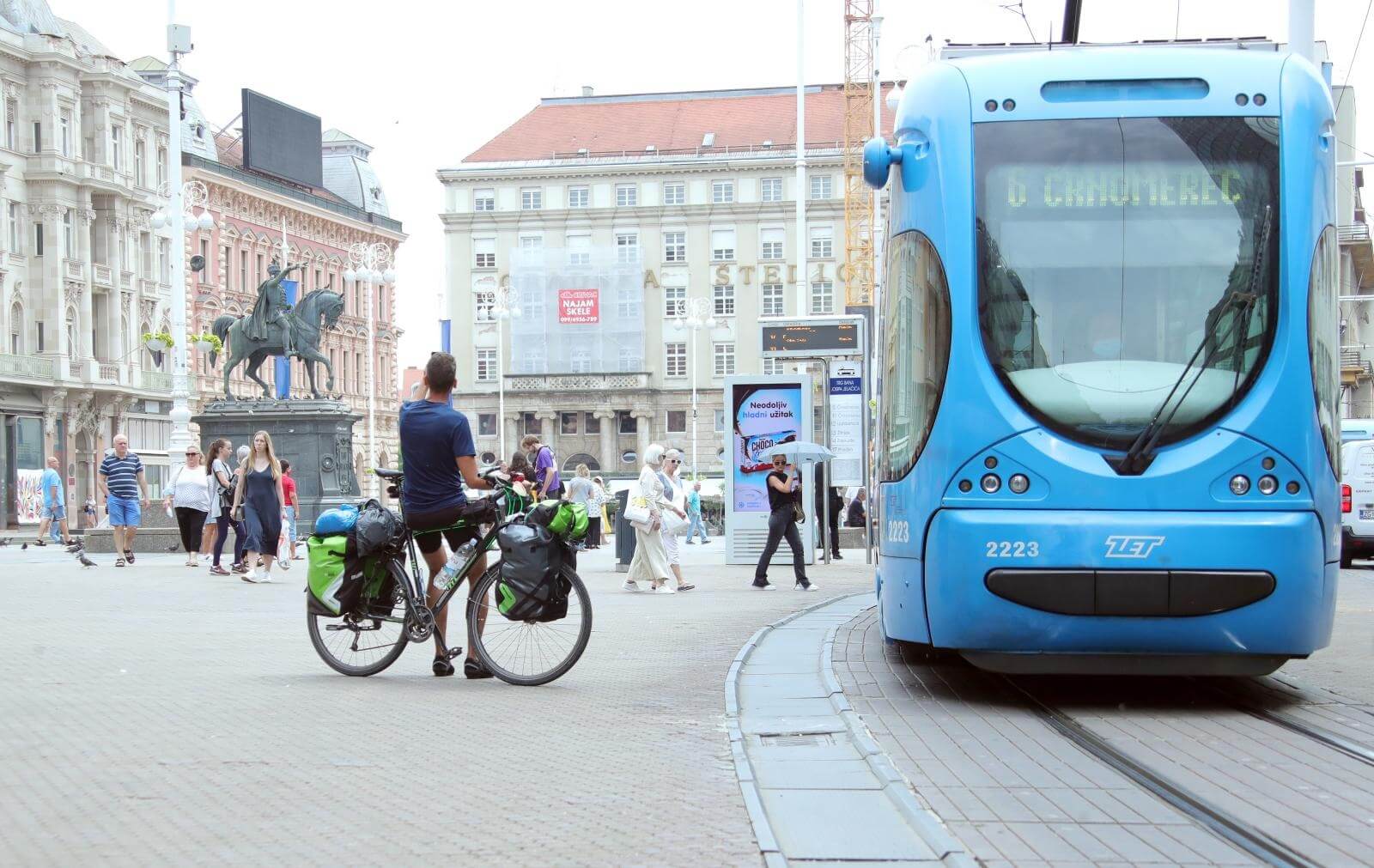
The Zagreb trams at the Ban Josip Jelačić square (Photo: Sanjin Strukic/PIXSELL)
In Rijeka, the city has a bus system called Autotrolej that connects the city. As in Zagreb, you will need to get your public transport card to move from Trsat (where your accommodation and classes are) to the center and vice versa. In this city, it is highly recommended to have the card, since the largest number of shops and restaurants are in the center, and to return to Trsat you have to walk a lot and through steep streets, which in these times can become streams of water with storms and rains. The buses that take you to and from Trsat are lines 2, 7a, and 8. If you want to buy the ticket from a Tisak or from the driver, it will cost you 10 kuna if you travel from Trsat to the center of Rijeka and vice versa.
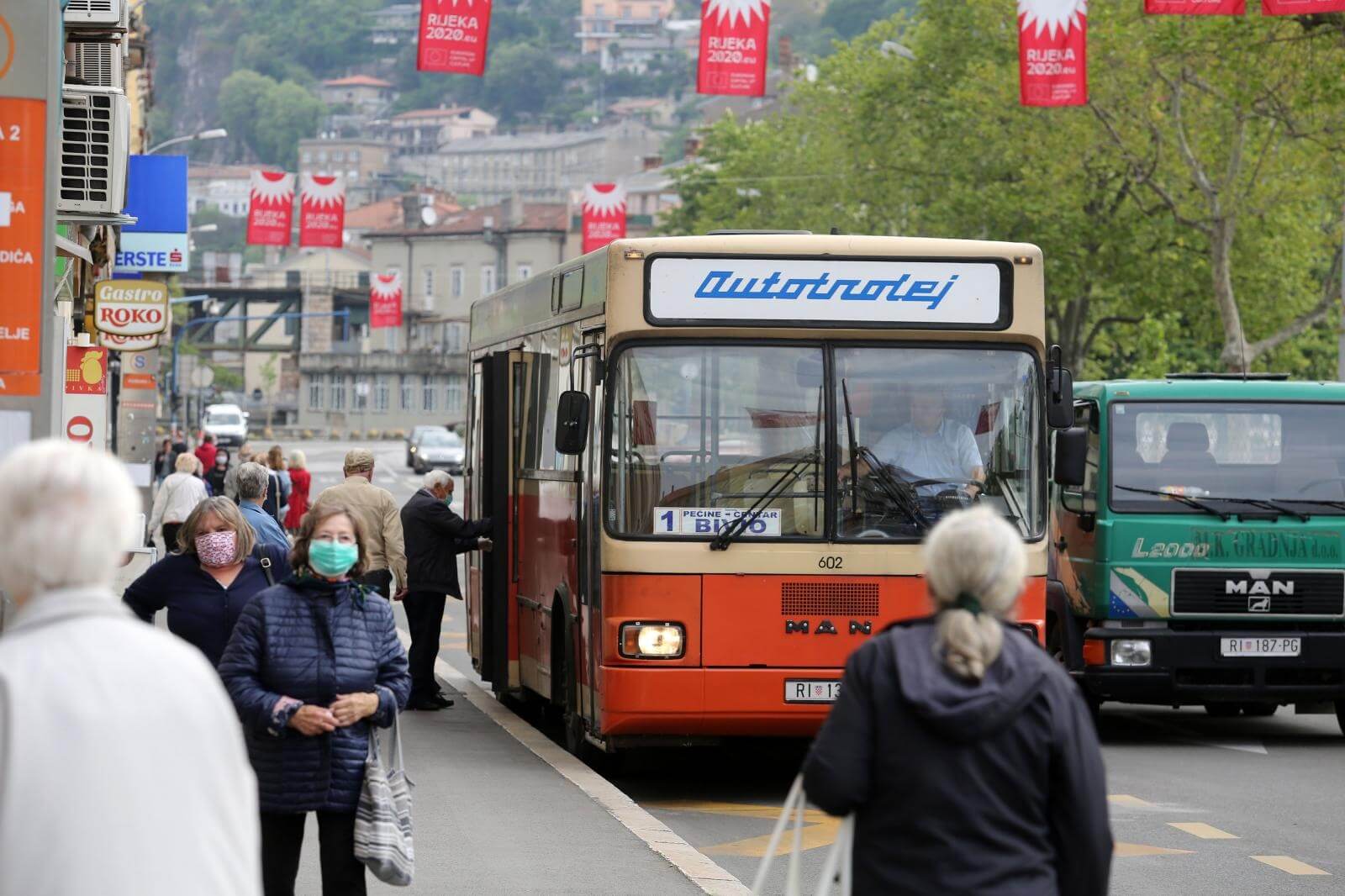
The buses in Rijeka (Photo: Goran Kovacic/PIXSELL)
In Split, as in Rijeka, you will find a network of buses that runs through the different areas of the center and the outskirts. Split public transportation company is called Promet Split. For detailed maps of their city and suburban lines, as well as ticket prices, check out their official website. Most of the locations within Split fall into Zone 1 in the company’s price list. Zone 1 tickets for a single ride cost 9kn when bought on Tisak, 11kn when bought on the bus. The daily ticket is 30kn.
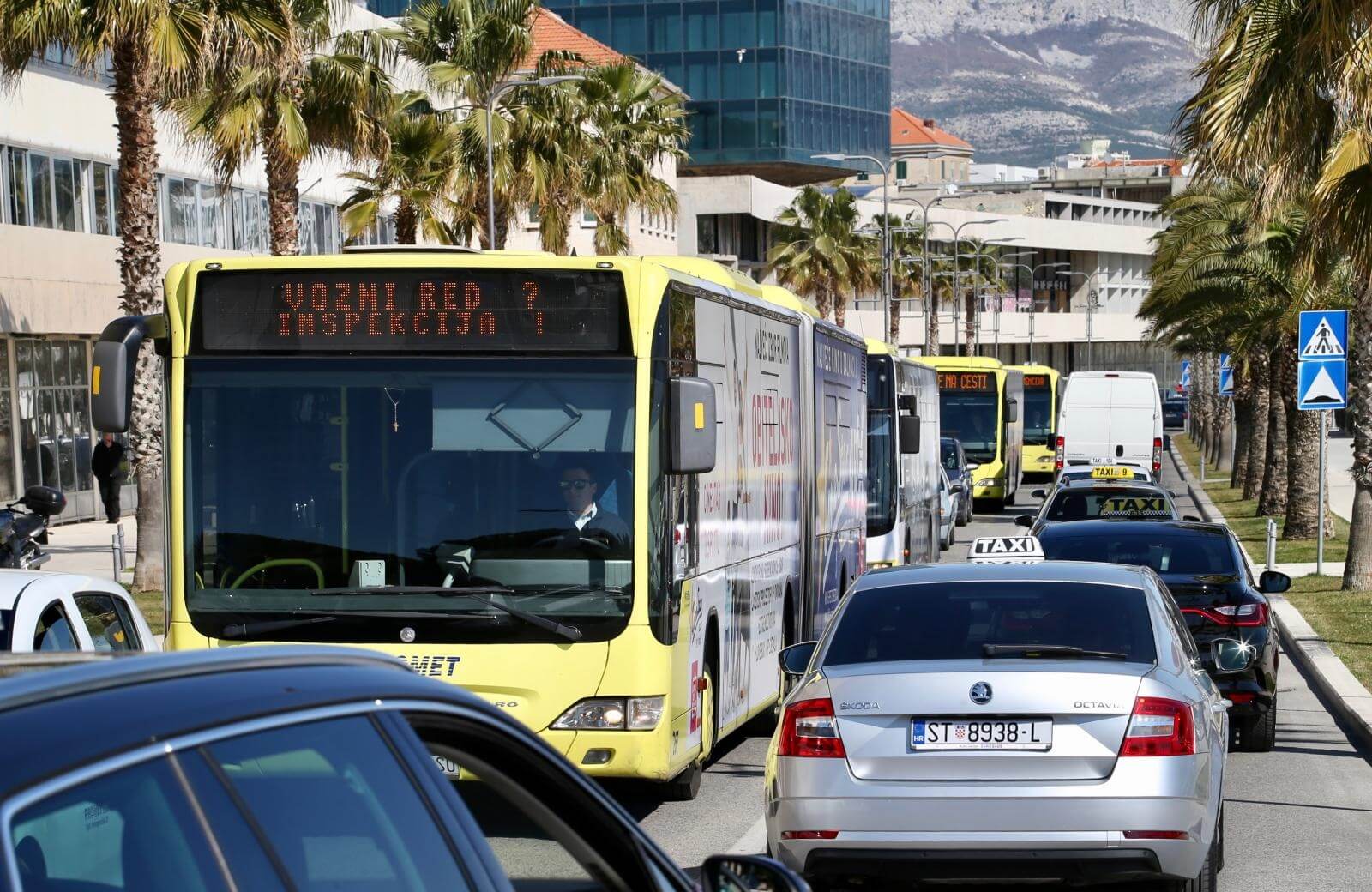
The buses in Split (Ivo Cagalj/PIXSELL)
Osijek was the first city in Croatia to have a tram system. In fact, trams still run through the city: it’s the only place in Croatia outside Zagreb that has trams. Osijek is a very pleasant city to walk around. Indeed, you can walk between all of the city’s key areas without barely leaving fantastic park ground. And we recommend you do just that. However, Osijek is also nicely covered by public transportation. In this case, that means cheap local buses and trams. Additionally, there are well-priced taxi services. It costs only around 20 kn to travel anywhere in the city (within 5 km).
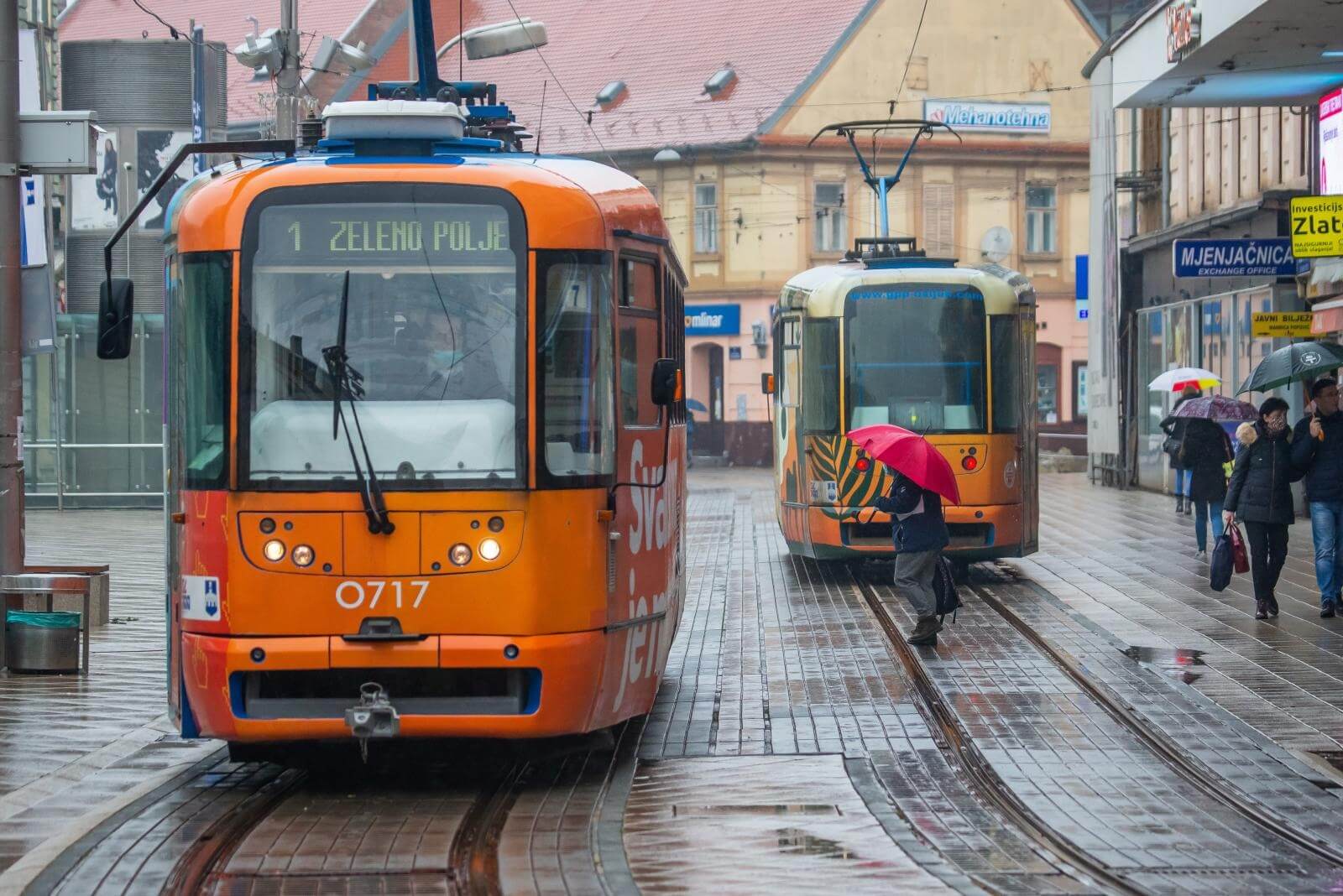
The trams in Osijek (Davor Javorovic/PIXSELL)
Not only will you find that it is easy to move from one place to another in the city, but that you will also be able to travel to all destinations in the country through buses and trains. If you're familiar with Uber, you'll be able to catch one anywhere in your city and even at late hours. Other options for Taxis are Cammeo and Bolt.
Health in Croatia
You will most likely arrive in Croatia with international health or travel insurance. Make sure you bring the necessary documentation related to that insurance. In case you need a consultation with a specialist or have to go to emergencies, contact your insurance before and after to cover the expenses. Medical receipts for those who are not enrolled with insurance can be ruthless. In addition, in pharmacies, it is essential to present a prescription to obtain your medications. A doctor assigned by your travel insurance can fill this prescription and mail it to you.
In case you are interested in public health insurance, especially if you wish to stay for a longer period of time even after the course ends, health insurance in Croatia is mandatory for all those who have temporary or permanent residence in the country, both ones with Croatian citizenship and foreigners. If you have an OIB, you can apply for Croatian health insurance. Check with the HZZO (Croatian Health Institute) offices if Croatian health insurance is right for you or if you are eligible. In the most likely case, you will have to pay the equivalent of the previous year to enroll, and you must not be affiliated with private or public insurance in your country of origin. Once enrolled, you will have to pay 500 kuna per month that will allow you to access prescribed medications, medical consultations, and cover expenses in the emergency room. Also, you will need to register with a GP.
To learn more about the healthcare system in Croatia, visit this guide from Total Croatia, where you will find information about specialists (some of them that speak in English), emergency numbers, hospitals, and insurance.
If you'd like to have emergency contact numbers handy, check out this Total Croatia page.
To learn more about Zagreb, such as places to see, things to do, museums, restaurants, bars, cafes, public transport, fun facts, events, and more, visit their Total Croatia page.
To learn more about Split, such as places to see, things to do, museums, restaurants, bars, cafes, public transport, ferry, fun facts, events, and more, visit their Total Croatia page.
To learn more about Rijeka, such as places to see, things to do, museums, restaurants, bars, cafes, public transport, ferry, fun facts, events, and more, visit their Total Croatia page.
To learn more about Osijek, such as places to see, things to do, museums, restaurants, bars, cafes, public transport, fun facts, events, and more, visit their Total Croatia page.
To find out more about what you need to know about Croatia, how to get around the country, destinations you can visit during your stay, and things you can do and see in these months, visit www.total-croatia.com, available in your language!
If you wish to learn more or have any questions about the Croatian language scholarship given by the Central State Office for Croats Outside the Republic of Croatia to study the Croatian Language in Croatia, send me an email to This email address is being protected from spambots. You need JavaScript enabled to view it.
Mandatory EU COVID Passports at Poljud and Croatia News Before Slovenia Qualifier
September 6, 2021 - Attending Croatia's 2022 World Cup qualifier against Slovenia in Split on Tuesday? Here's all you need to know about mandatory EU COVID passports at Poljud Stadium, Spaladium Area ticket sales, and match expectations.
Upon entering Poljud stadium for the 2022 World Cup qualifier between Croatia and Slovenia, which is played on Tuesday, September 7, visitors must present an EU digital Covid certificate, the Split Police reassured.
"We remind visitors that at the entrance they must have: purchased a personalized ticket, an identification document with a picture (identity card, passport, driver's license) based on which their identity and EU digital Covid certificate will be verified before entering," the Split Police Department said in a statement.
All three documents must have identical identification data because visitors will not be able to enter the stadium.
Croatia and Slovenia will meet on Tuesday at 8:45 pm, and the entrance to the stadium will be open from 6 pm.
"We invite visitors to come earlier so that after inspections and checks, they can enter the stadium and take their place marked on the ticket," the police explained.
They stressed that, after entering the stadium and during the match, spectators could only sit in the place specified on the ticket and cannot be in spaces not provided for them.
The police note that before, during, and after the match, they will "intensively observe the area of the City of Split, visit places where fans and fan groups will gather, carry out measures and actions within the competence of the police, all to prevent illegal behavior and protect property and safety."
"We are informing the citizens that in the coming days, and especially intensively on the day of the match, police officers will be more present in the City of Split, but also on the access routes, and take measures and actions within the competence of the police to prevent illegal behavior," the police said.
The police emphasized that on the day of the match, in Split, but also Split-Dalmatia County, a large number of fans and members of various Croatia fan groups are expected.
"We ask citizens if they notice groups of people who are behaving illegally or could behave in such a way, to call the police at 192 immediately," the police urged.
They informed the citizens that they would block the traffic on the promenade around the stadium from Monday, from 8 pm until the end of the match on Tuesday.
As of Sunday, around 9,000 tickets had been sold for the match so far. The Spaladium Arena box office will be open on Monday, September 6, from 12 to 10 pm, and on Tuesday, September 7, from 9 to 9 pm.
Hajduk striker Marko Livaja spoke about playing at home, at Poljud.
"I am happy to be in the national team again, and I do not burden myself with minutes; it will be the way the coach decides. My position? I haven't played at the top of the attack for six, seven years, the coach has his vision, he knows what I play at the club, but I can certainly do better," says Livaja, who knows what Poljud has to offer.
"I am convinced that the atmosphere will be great and that we will play the right game. A victory would push us close to the desired goal. We are of better quality; I expect that Slovenia will close and wait for their chance. If we are real, we will win. Kek is a proven good coach, and he certainly knows our team well, but we have to concentrate on ourselves, and then the victory should not be in question."
To follow the latest sports news in Croatia, follow TCN's dedicated page.
To learn more about sport in Croatia, CLICK HERE.
2022 World Cup Qualifier at Poljud: Croatia v. Slovenia Tickets On Sale TODAY!
September 1, 2021 - Tickets are on sale today for Croatia's 2022 World Cup qualifier at Poljud against Slovenia on September 7!
Following the decision of the Croatian Civil Protection Headquarters from August 30 that public gatherings are still allowed in which only persons with an EU digital COVID certificate participate, the Croatian Football Federation confirms that the Croatia-Slovenia match will be played in the presence of spectators with a valid EU digital COVID and hereby informs the public about the ticket purchasing process.
Ticket sales for the qualifying match between Croatia and Slovenia at Poljud Stadium (September 7 at 8:45 pm) begin on Wednesday, September 1 at 12 pm.
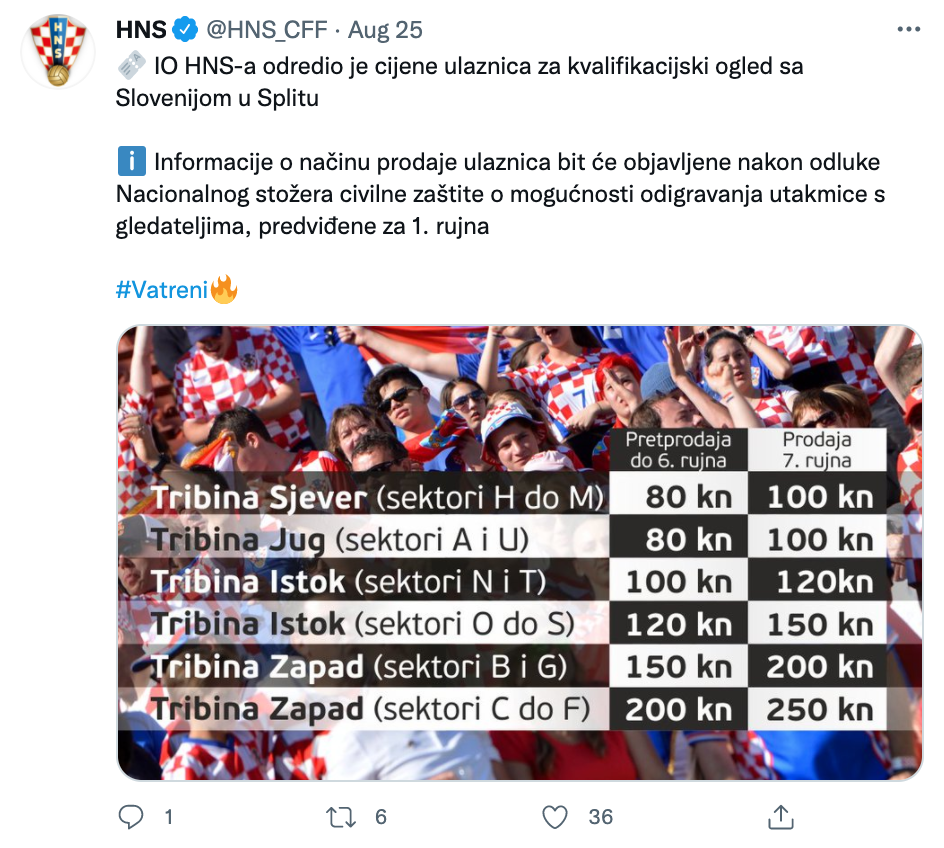
Ticket sales are organized exclusively via the Internet at the following prices:
Ticket prices presale / until September 6 (TICKET PORTAL):
West middle: 200 kn
West: 150 kn
East middle: 120 kn
East: 100 kn
North / South: 80 kn
Ticket prices (on the day of the match):
West middle: 250 kn
West: 200 kn
East middle: 150 kn
East: 120 kn
North / South: 100 kn
ALL PERSONS COMING TO THE STADIUM WITH YOU MUST HAVE AN EU DIGITAL COVID CERTIFICATE.
Please note that vaccination certificates or illness certificates will not be recognized and various test results, but only the EU digital COVID certificate with a valid QR code that will be checked at the entrance.
Children under the age of 12 who have a ticket can enter the stadium without an EU digital COVID certificate if accompanied by a parent or guardian who has a certificate and a ticket.
Information on how to download EU digital COVID certificates can be found at the following link: https://eudigitalnacovidpotvrda.hr/hr/cesta-pitanja.
Fans who have not been vaccinated or have recovered from COVID-19 on arrival at the stadium will be tested through rapid antigen tests. The price of the test will be 50 kn per person, and the test point will be open in front of the Spaladium Arena in the following terms:
Monday, Sept. 6, from 12:00 to 22:00
Tuesday, Sept. 7, 9:00 to 21:00
Ticket sales include e-tickets that the customer must download and print. Only citizens of the Republic of Croatia have the right to purchase by filling in the required personal information.
Due to special epidemiological measures in the stands, one person can buy up to four (4) tickets. In addition to their data, the buyer enters data on another fan for whom they buy tickets, where another fan does not necessarily have to be a citizen of the Republic of Croatia, but cannot be a citizen of the Republic of Slovenia due to UEFA epidemiological measures banning ticket sales to visiting fans for September qualifiers.
Tickets will be available online, where you can find detailed information on ticket sales and payment methods.
"We warn the fans that when entering the stadium, security will check the accuracy of personal data on the tickets and that fans who try to enter the stadium with a ticket in another name will be denied entry. Therefore, we warn fans not to buy tickets on the "black market" with other information on the ticket," concluded HNS.
To follow the latest sports news in Croatia, follow TCN's dedicated page.
To learn more about sport in Croatia, CLICK HERE.
Split Area Caves and Pits Turning into Landfills (PHOTOS)
August 29, 2021 - Volunteer speleological initiative "Čisto podzemlje" (Clean Underground) is on a mission to raise awareness about the increasing number of Split area caves and pits that are becoming active landfills.
The volunteer speleological initiative "Čisto podzemlje" (Clean Underground) is tirelessly fighting against throwing waste into the karst underground, and the increasing number of negligent scenes throughout Croatia has not discouraged them on their mission, reports Slobodna Dalmacija.
The association members shocked their Facebook followers after sharing photos of the huge landfill they found in Gaćina jama in the Biokovo hinterland, where waste from the densely populated area of Zagvozd ends up.
"Let's wake up after the summer break. Cave reports about new underground atrocities are arriving ... We start with the Gaća pit in the hinterland of Biokovo near Zagvozd. It is one of over 103 contaminated sites in the vicinity of Split (only a few have been cleaned).
The garbage in the pit is completely fresh ... dumped from a nearby road yesterday. Local people injected over 100 cubic meters of household waste, carrion, bulky and construction waste, medicines, chemicals, and pesticides. So far, only we speleologists have seen the garbage, because the surroundings of the entrance are as clean as a tear, and in the underground a horror movie. Thank you, Osmica Karlovac, for reporting!"
"30 years of flattery and pain have come to fruition," "We haven't learned anything, nor will we," "So what are uncivilized people doing to us?" "You will poison us all," the comments below the post follow.
"We devastate everything we touch and, what’s craziest, we think we have a right to it," another remarked.
"It is important that the biggest problem in Split is the new beach for dogs, because they will dirty the sea," someone else protested.
The bottom of Gaćina jama has a diameter of 20 m, and as of this weekend, it is covered with more than a hundred cubic meters of waste. However, it remains unknown whether it extends further into the depths.
"There is carrion, large and small municipal waste, construction and hazardous waste, drugs, chemicals, pesticides," it is stated on the association's website.
Speleologist Ruđer Novak of the "Clean Underground" initiative says that over 900 similar locations have been detected in Croatia so far, but he notes that this is certainly not all.
The initiative has cleared dozens of underground landfills in recent years. But, unfortunately, it also happens that the cleaned site is very quickly refilled with waste.
"There were cases when we thought that we would clean the pit 'once and for all, because the garbage in it is old, and the nearby village has been displaced. But then it happens that shortly after cleaning it, the weekenders come. In the abandoned villages, of course, there are no containers, so those who visit their grandparents to clean the old house, throw all the waste into the pit," said Novak as one classic example.
"The whole village used the landfill in the hinterland of Biokovo for a long time. This is partly a matter of the population's habit, which did not have organized waste collection until 15 or 20 years ago. It's just that it was once dead sheep, wood and stones, and today plastic, car tires, TVs… So the composition of waste has changed, which is a great environmental threat," said Novak.
The main problem, he points out, is the pollution of water, which seeps through the rubble and breaks through the waste deposits.
"Caves and pits are natural pathways by which surface water seeps into the underground, and it is the water that feeds our springs and makes up our water pumping station. In this case, the water is drained through landfills. This means that everything thrown into the pit eventually ends up in a glass on the table," he warned.
He also notes that 70 percent of all Croatian endemic species are underground animals.
"The area of the Dinaric karst has the greatest diversity of underground fauna in the world; our country is unique in that respect," he said.
Novak adds that people are sometimes unaware of the damage they are doing and stresses the importance of educating people in local communities, to whom no one has so far explained how wastewater ends up in their wells as well.
Speleologists have noticed that the majority of waste in Gaćina jama has been freshly dumped, which means that it is an active landfill.
"It is easy to unload a waste truck into a pit, while cleaning is very demanding," said Novak.
He emphasizes that landfills contain not only plastic and electronic waste but also carrion and mines.
"We are closely cooperating with the Ministry of the Interior's anti-explosion service since explosives were found in the pits not only from the Homeland War but also from the First and Second World Wars. Grenades found underground are full of heavy metals that decompose over decades and thus poison people and the environment," he added.
Since cleaning underground landfills is a demanding and dangerous undertaking, only specially trained people can engage in it. Thus, interested and concerned citizens cannot participate in volunteer actions.
"There are 700 or 800 speleologists in Croatia. They are all volunteers. Only they and HGSS members are trained to clean landfills because they use speleological rescue techniques. Rope systems are used to bring the load to the surface. Civilians, unfortunately, cannot get involved in volunteering because it is physically impossible. So we are constrained in terms of the number of people," the speleologist explained.
Novak notes that cleaning actions are possible thanks to donors, among which the leading retail chain is LIDL. Because of this, the association was allowed to change the model of functioning.
"We try to attract as many donors as possible so that we can continue this story. However, speleologists volunteers do work for which the state is not capable; no company on the market would deal with it," Novak concluded.
For more on lifestyle in Croatia, follow TCN's dedicated page.
Despite Bad Weather, 120,000 Passengers at Split Airport and Ferry Port this Weekend
August 28, 2021 - While the summer weather has disappeared, albeit temporarily, it has not affected the passengers at Split Airport and Ferry Port this weekend, with an expected 120,000 due to travel through!
Although the weather conditions in recent days have hinted that summer is coming to an end, the figures from Split ports say otherwise, because 120,000 passengers in 190 planes and 16,000 vehicles will pass through them this weekend, reports T.portal.
The head of the Reception and Dispatch Service at Split Airport, Mate Melvan, confirmed there will be a pretty good weekend ahead with 190 planes and 40,000 passengers, although slightly more of them departing than arriving.
"There is more pressure on departures than arrivals, but it is natural for this time of year. We can also confirm that the numbers are still high, the traffic is high intensity. We have already exceeded the figure of 400 thousand in August, which means we are heading towards one million this year. We will have the final results at the end of the month," Melvan added.
80,000 passengers and 16,000 vehicles will pass through the Split Ferry Port over the weekend. There, too, the departure of passengers to Split is more pronounced than earlier this season, which means that they are leaving the island for the mainland, reveals Jelena Ivulić from Jadrolinija.
"Due to the crowds in Supetar, we have had an extra line that sailed at 8:45 am from Split. Therefore, we do not have much pressure from Split, and although passengers still arrive, the truth is at a slower pace. Certainly, the season is not over yet since passengers are still coming," Ivulić said.
It is also interesting to note that by August 15, Jadrolinija had a total of 5.3 million passengers and 1.7 million vehicles on the entire coast, which is 85 percent of the turnover from the pre-pandemic 2019.
For more, make sure to check out our dedicated travel section.


